Within Viena's Superblock pilot project Supergrätzl Favoriten LAUT developed adaptive planter elements. Staring from the second half of 2024 the preliminary tactical/adaptive measures will give way to permanent construction measures of the implementation project. As their task of opening the streetspace for new uses has been completed the urban greening elements now found a new home at Vienna's "Schwendermarkt".
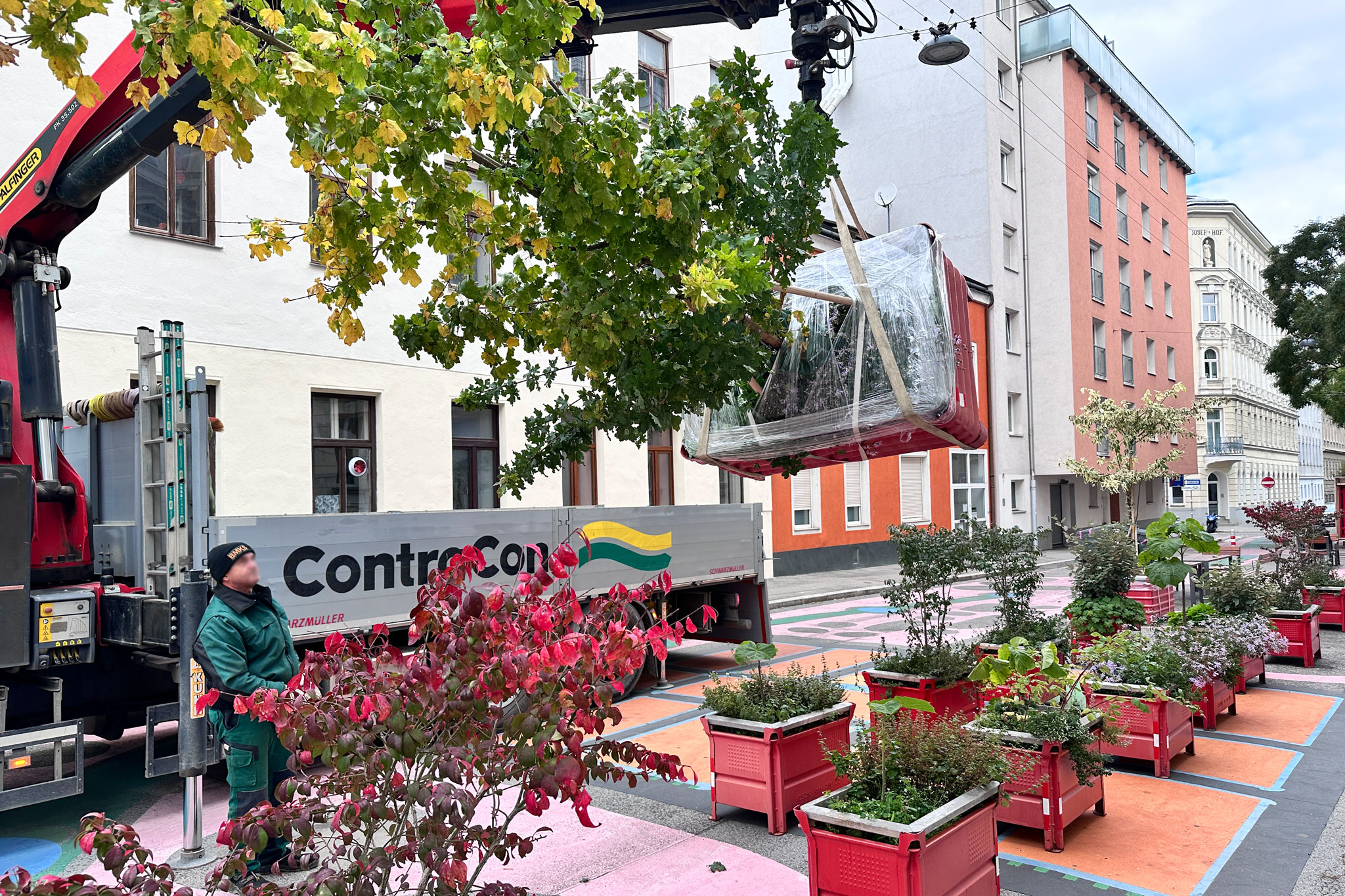
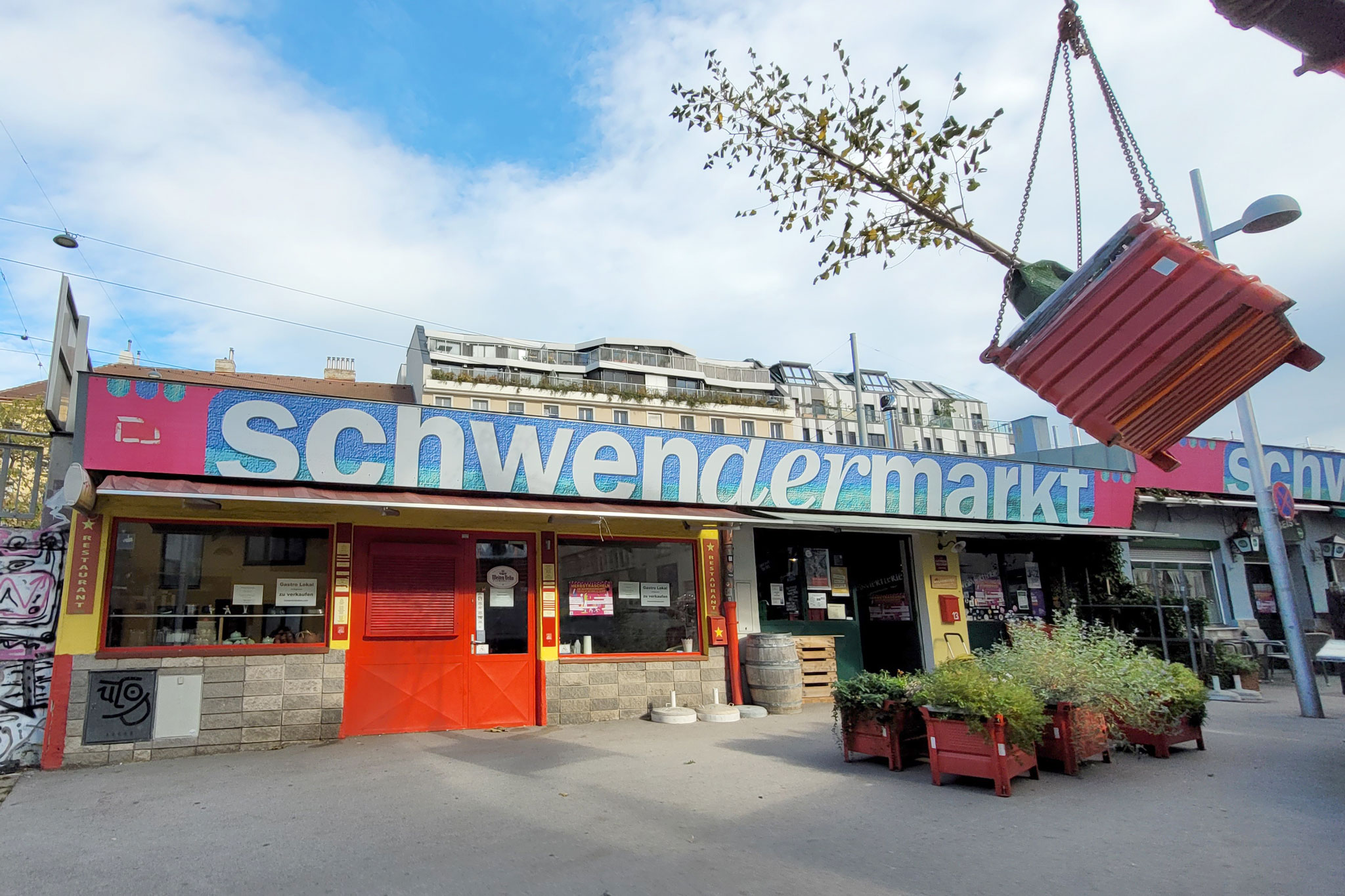
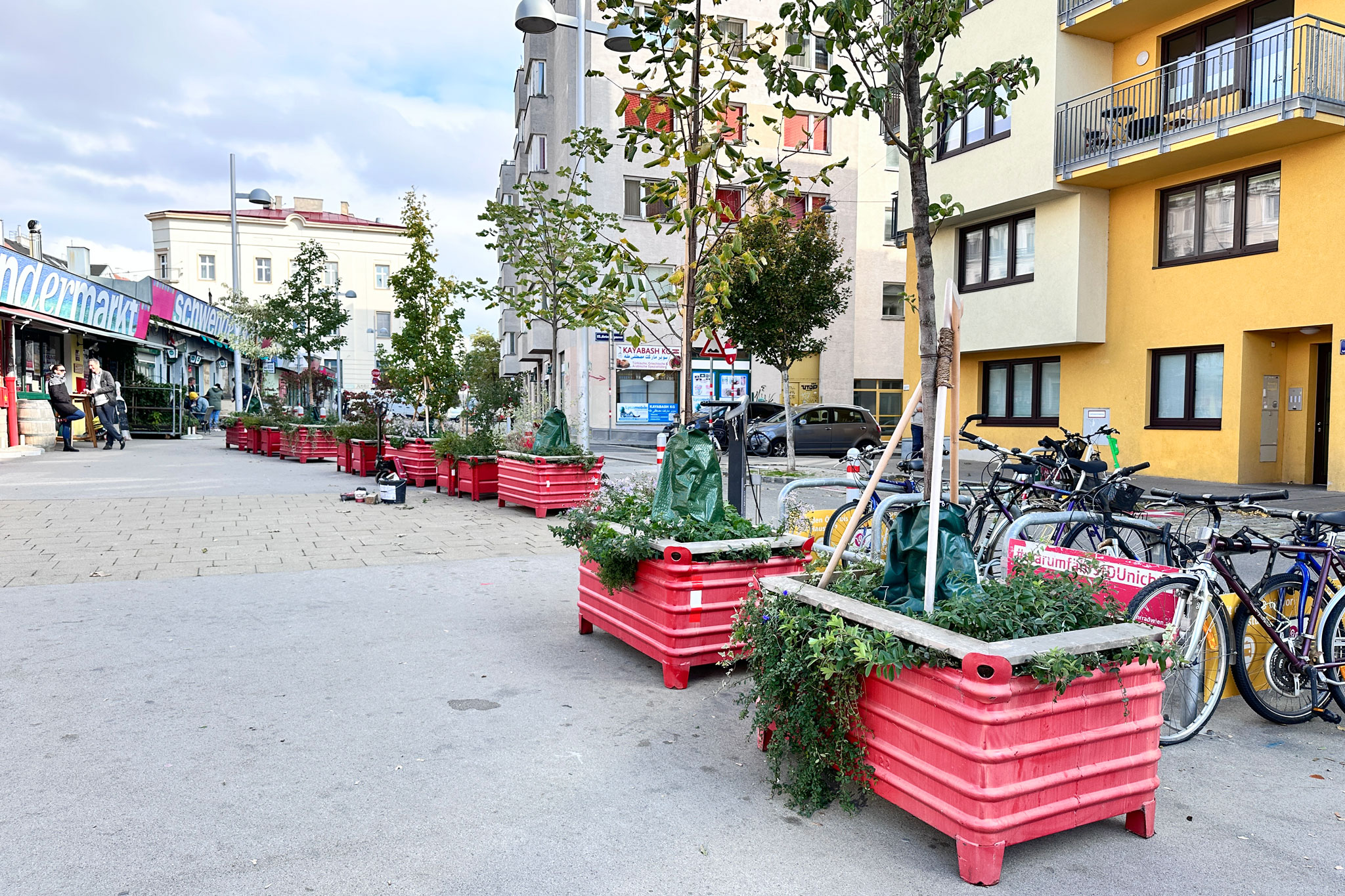
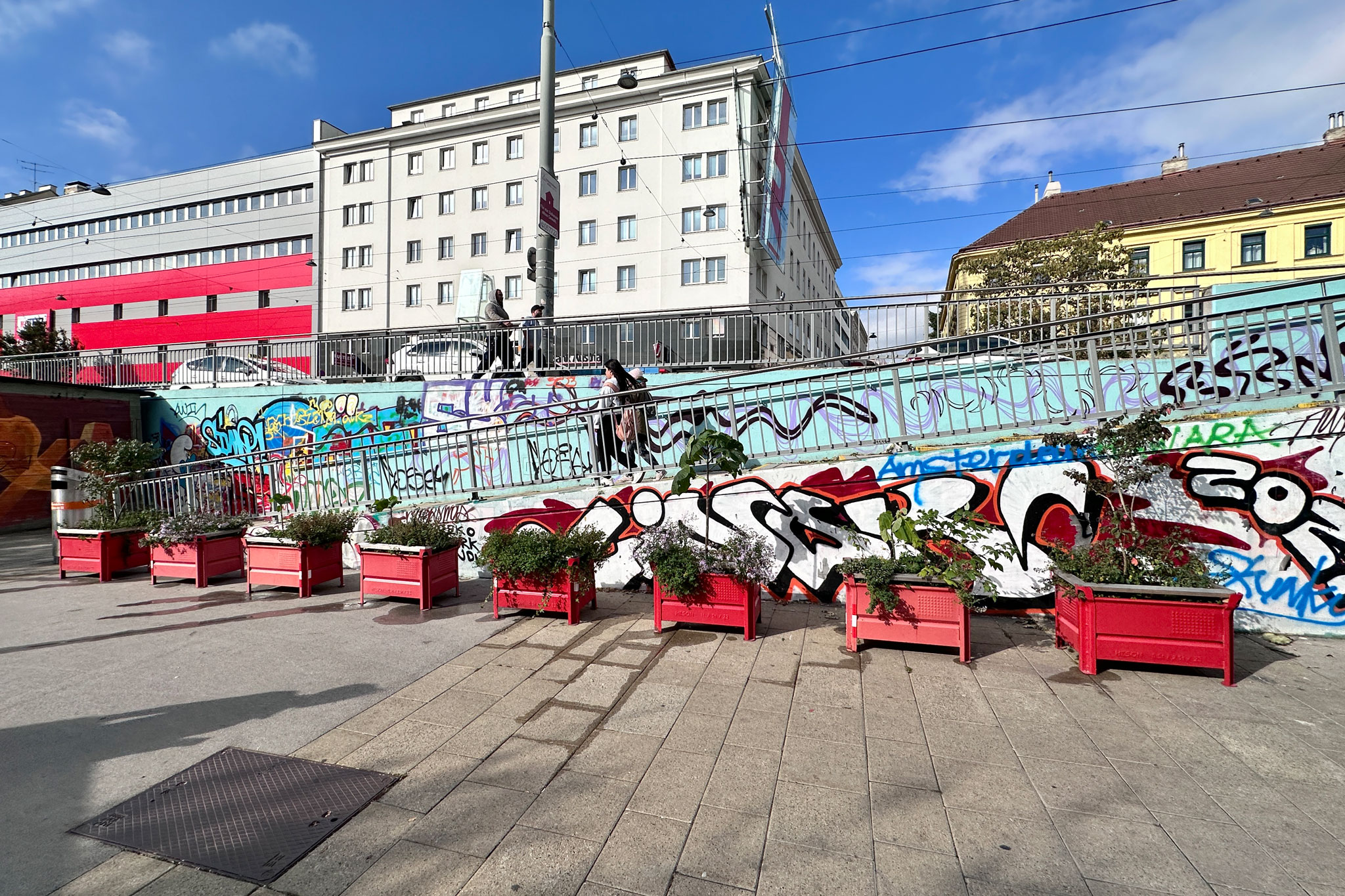
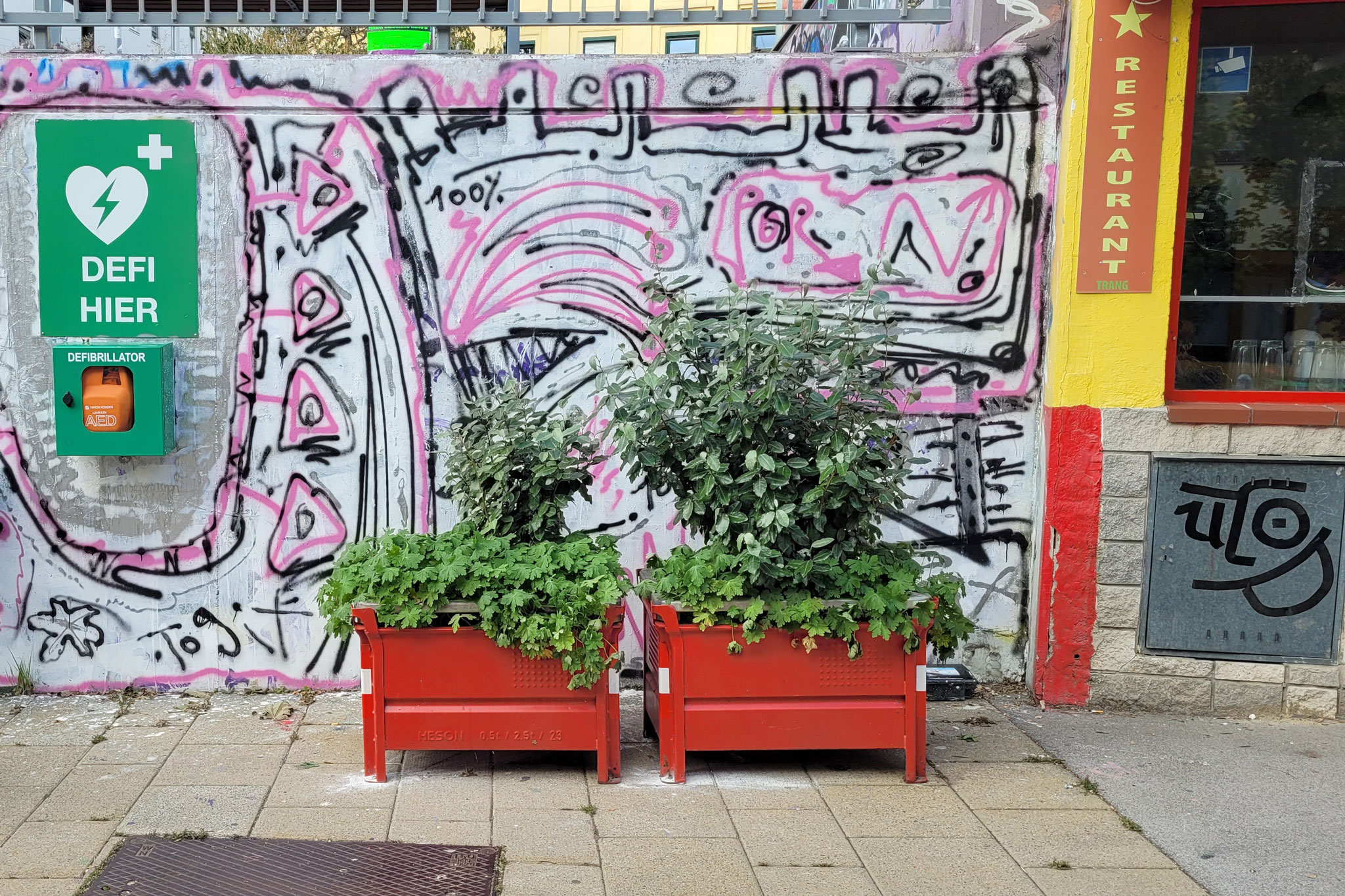
We are thrilled to have co-authored a peer-reviewed paper on the application of the superblock concept in Vienna. Leading author Anna-Katharina Brenner assembled a team of co-authors from BOKU-SEC, AIT – Austrian Institute of Technology and studio LAUT to investigate “How experiments with superblocks in Vienna shape climate and health outcomes and interact with the urban planning regime”.
The paper builds on the modelling results developed in the SUPERBE project as well as Anna’s investigation of the current application of Superblocks in Vienna. The highlights and main findings in the paper are:
Read the full paper to gain more knowledge on the history and future pathways of the Superblock project in Vienna.
→ Direct download
→ Online article on publisher’s website
One really interesting approach brought forward in the paper is the different “dimensions” of an urban planning regime that do interact with a project (experiment) to innovate or transform urban space. See the table below: We can tell from experience that each and every dimension can be a real ally or challenge!
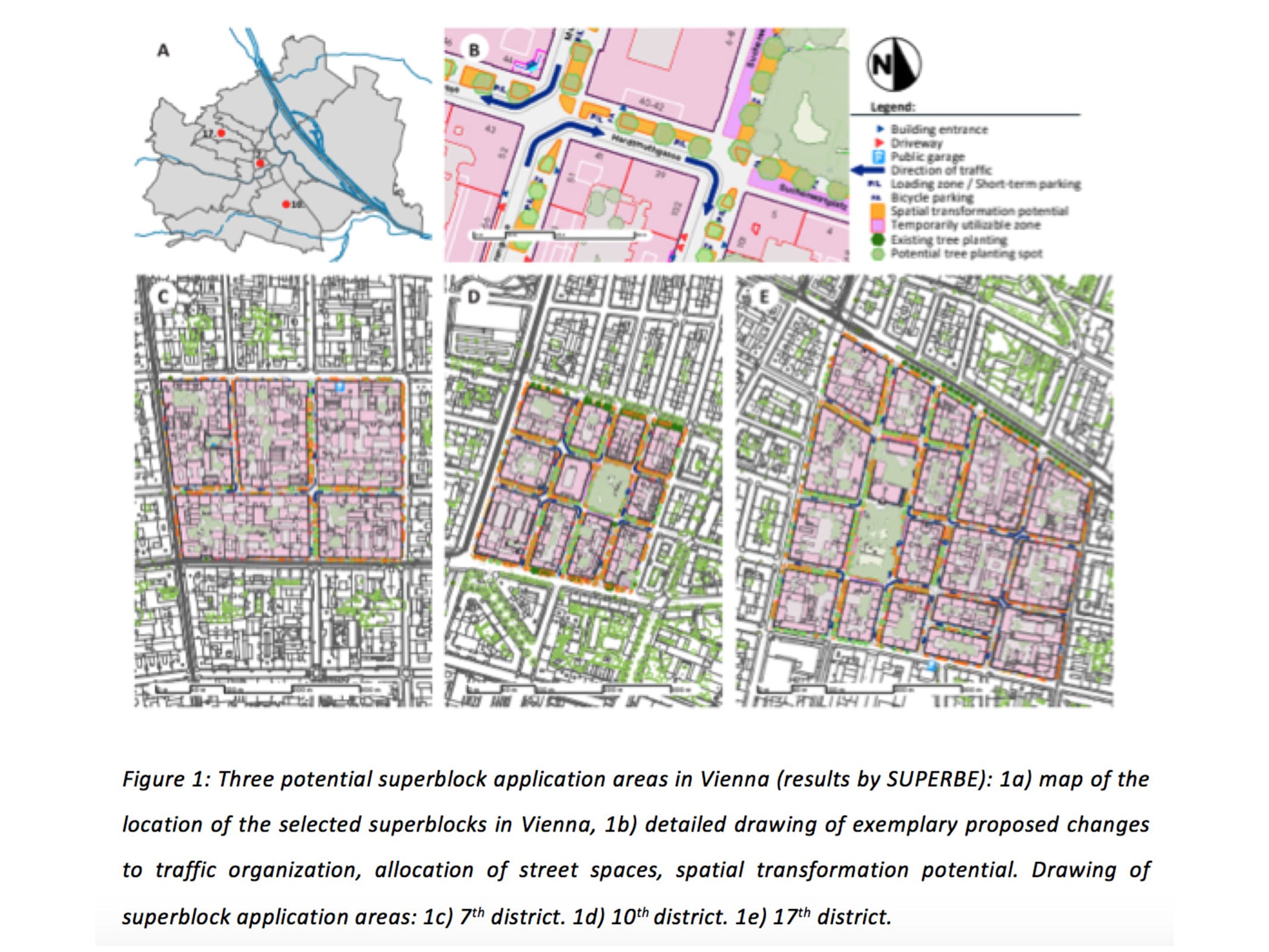
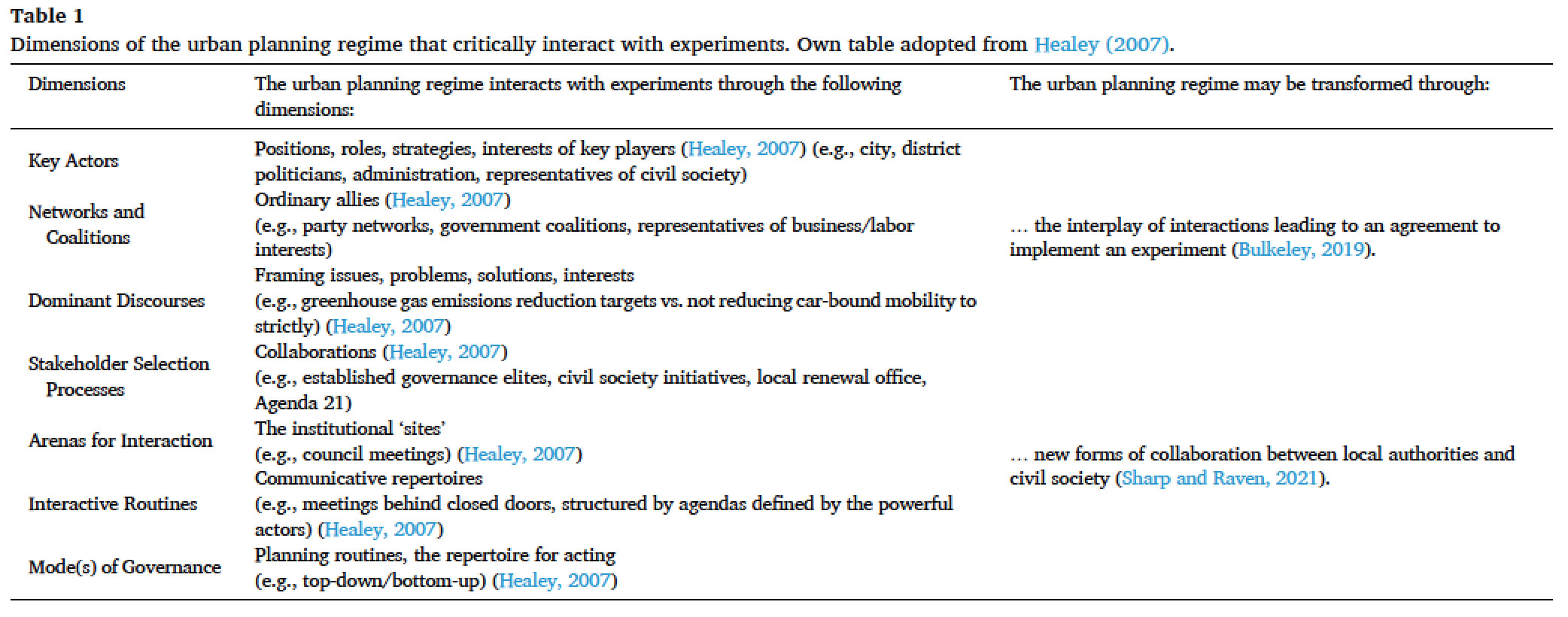
Enjoy the read!
How can citizens initiate and steer effective urban transformation processes? What are the conditions that enable civic stakeholders to involve themselves actively in urban transformation projects, or, eventually also kick them off?
In the TuneOurBlock project we investigate such questions, amongst others, with our consortial collaborators in two Living Labs in Vienna and Berlin.
Recently the first workshop in Vienna’s Living Lab – the superblock initiative in Lichtental, 1090 Wien – has been held. LAUT analysed the project area and led the process to develop scenarios for traffic organisation schemes to significantly reduce on street parking and inhibit motorised traffic to drive through the project area.
Based on these studies the team of AIT was able to create an experimental interactive participation tool for stakeholder involvement. The tool allows for a playful interaction with the different options for the superblock project and gives (real time) feedback on a variety of KPIs such as tree planting density or reduction of on-street parking. With the help of the tool these versions of the superblock can be overlaid and visualised as augmented reality overlays or provide a simple first-person VR experience of the transformed streetscape.
During the workshop our local partner – the agenda group “Lebenswertes Lichtental” – also collected inputs for their own advocacy work lobbying for a local superblock project. The group involved the neighborhood by mapping out ideas for the superblock project on a planview of the superblock site.
We are looking forward to applying our involvement strategies during the course of 2023 in the TuneOurBlock Living Lab!
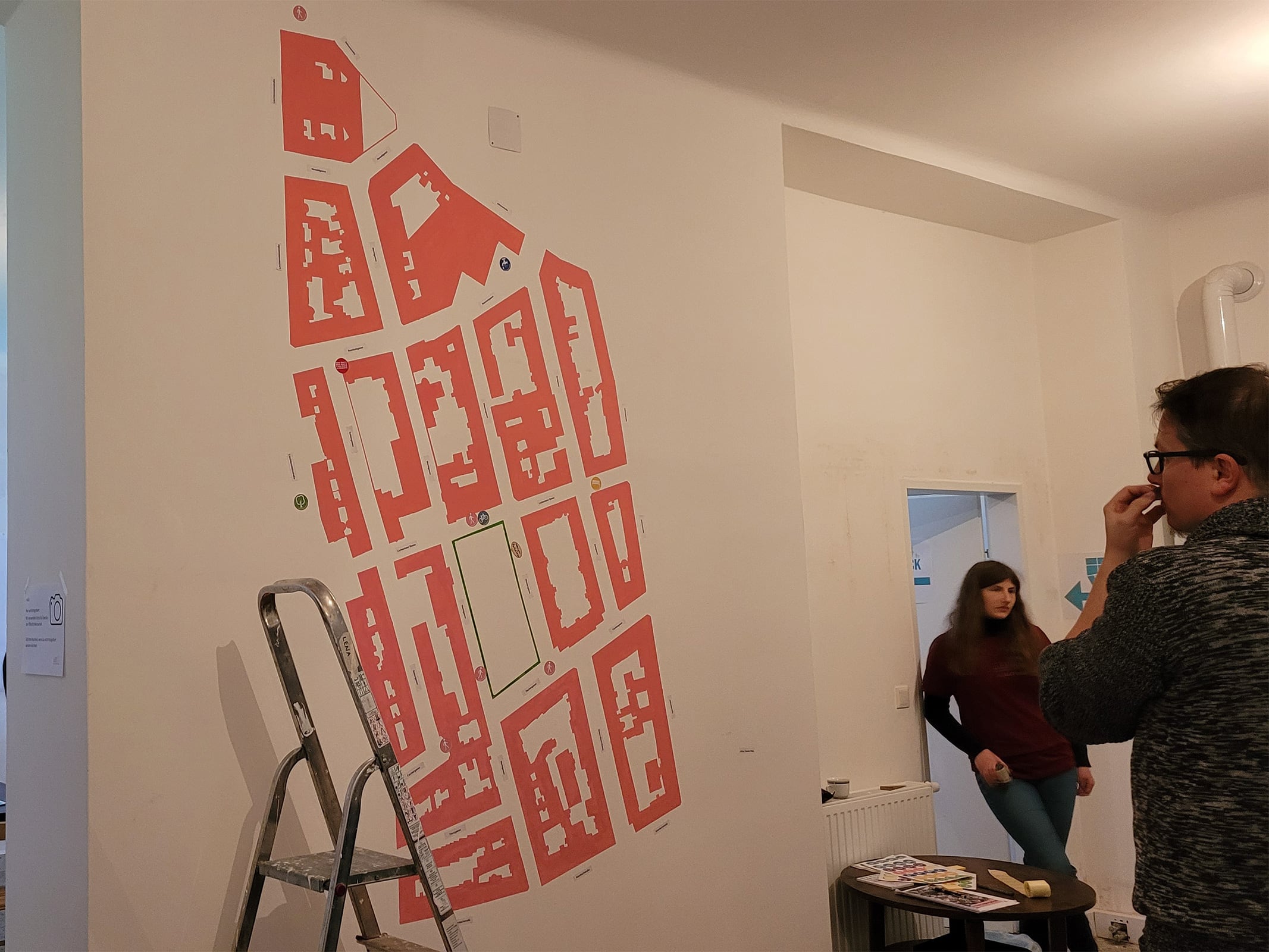
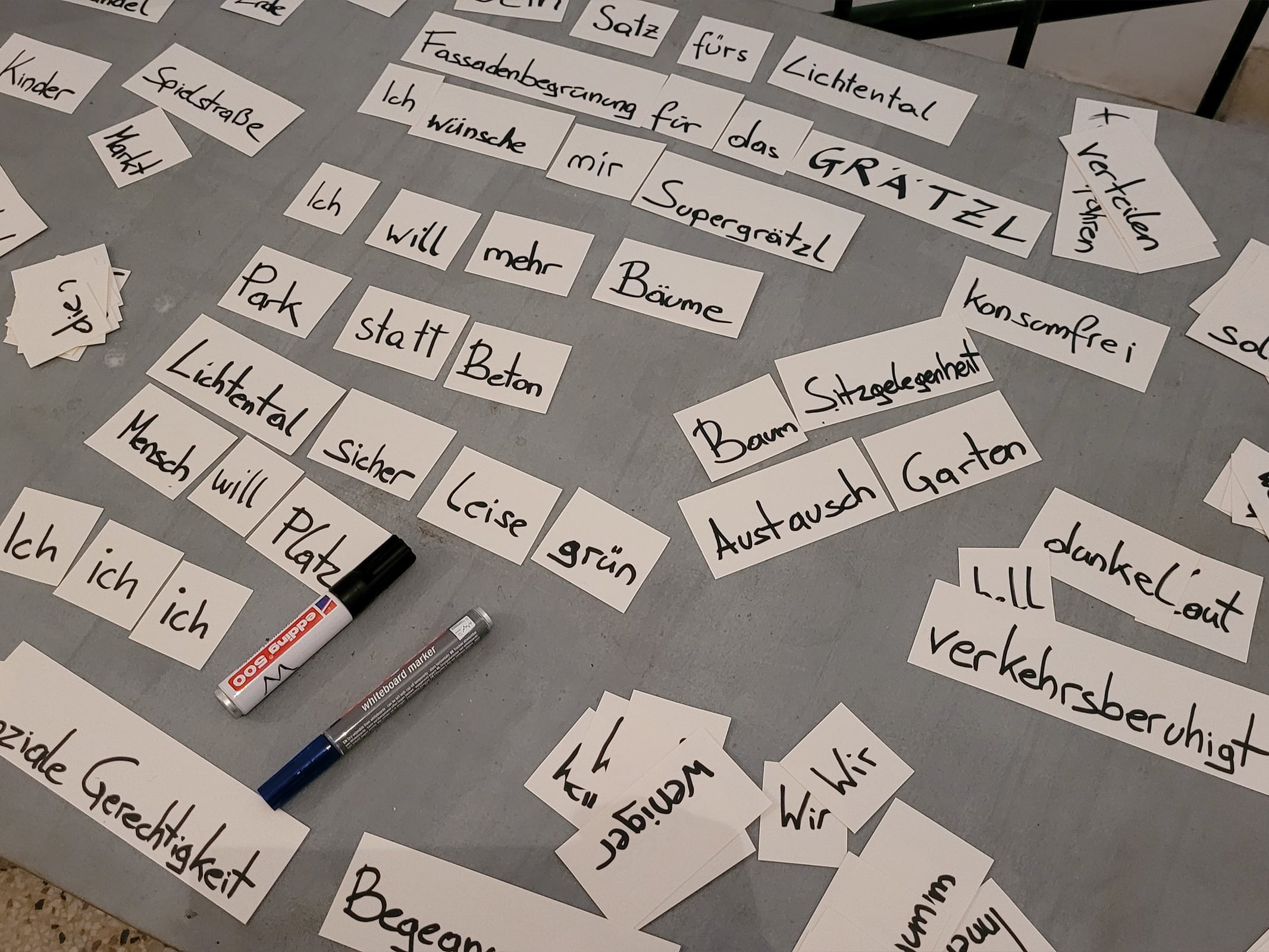
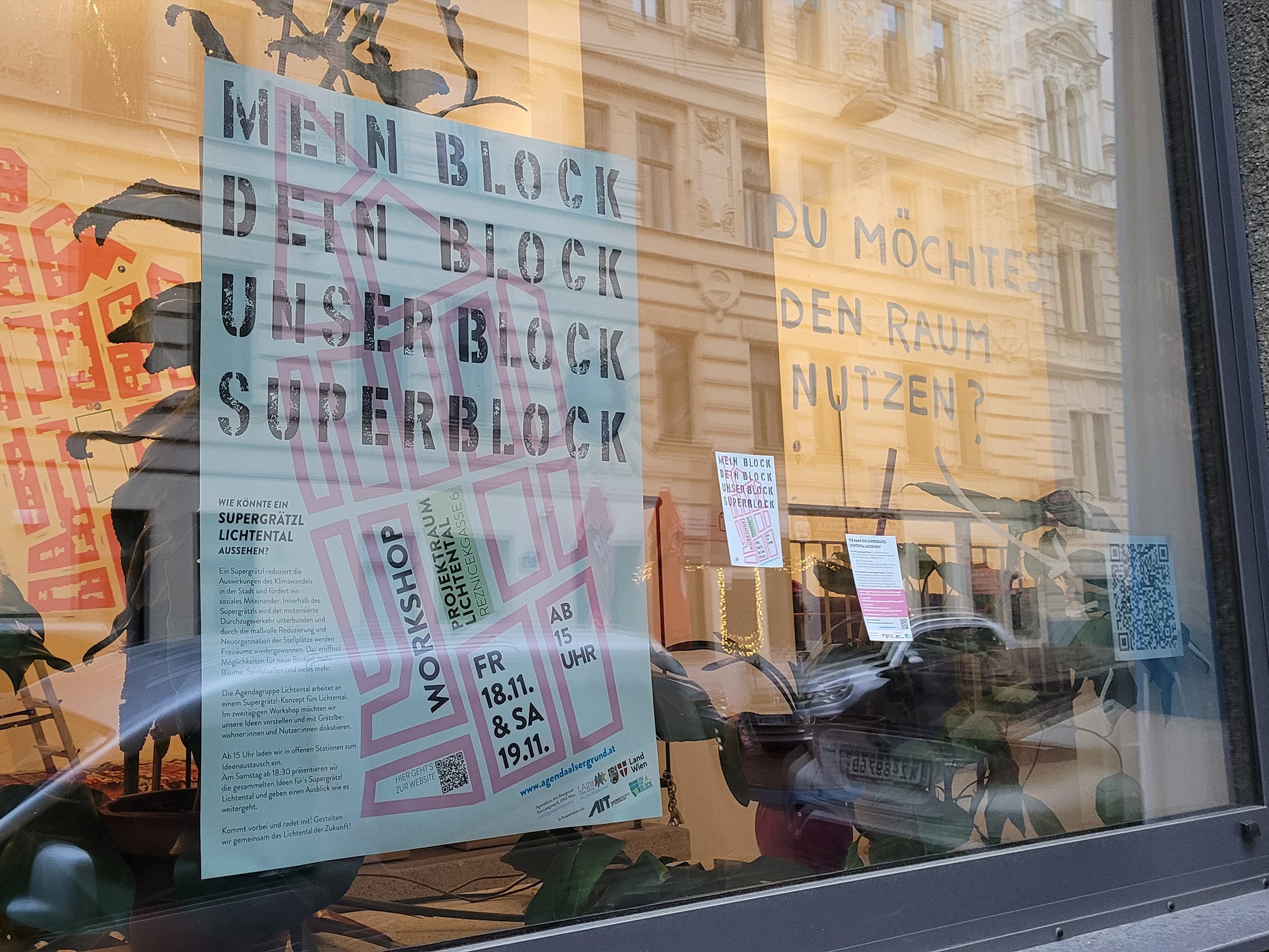
Within the TuneOurBlock project, LAUT helped to bring about the first International Superblock Meeting in Barcelona. From 22-25 March 2023 politicans and technical staff of 15 municipalities from all over Europe meet in Barcelona to discuss how superblocks and similar neighborhood-scale urban transformation projects can be implemented effectively.
As member of the TuneOurBlock municipal peer group, the City of Barcelona's Office of the Chief Architect initiated and brought about together with the TuneOurBlock project consortium. LAUT was helping to conceptualize, develop, prepare and facilitate the event.
Many thanks to the team at the Office of Barcelona's Chief Architect for this productive and excellent collaboration!
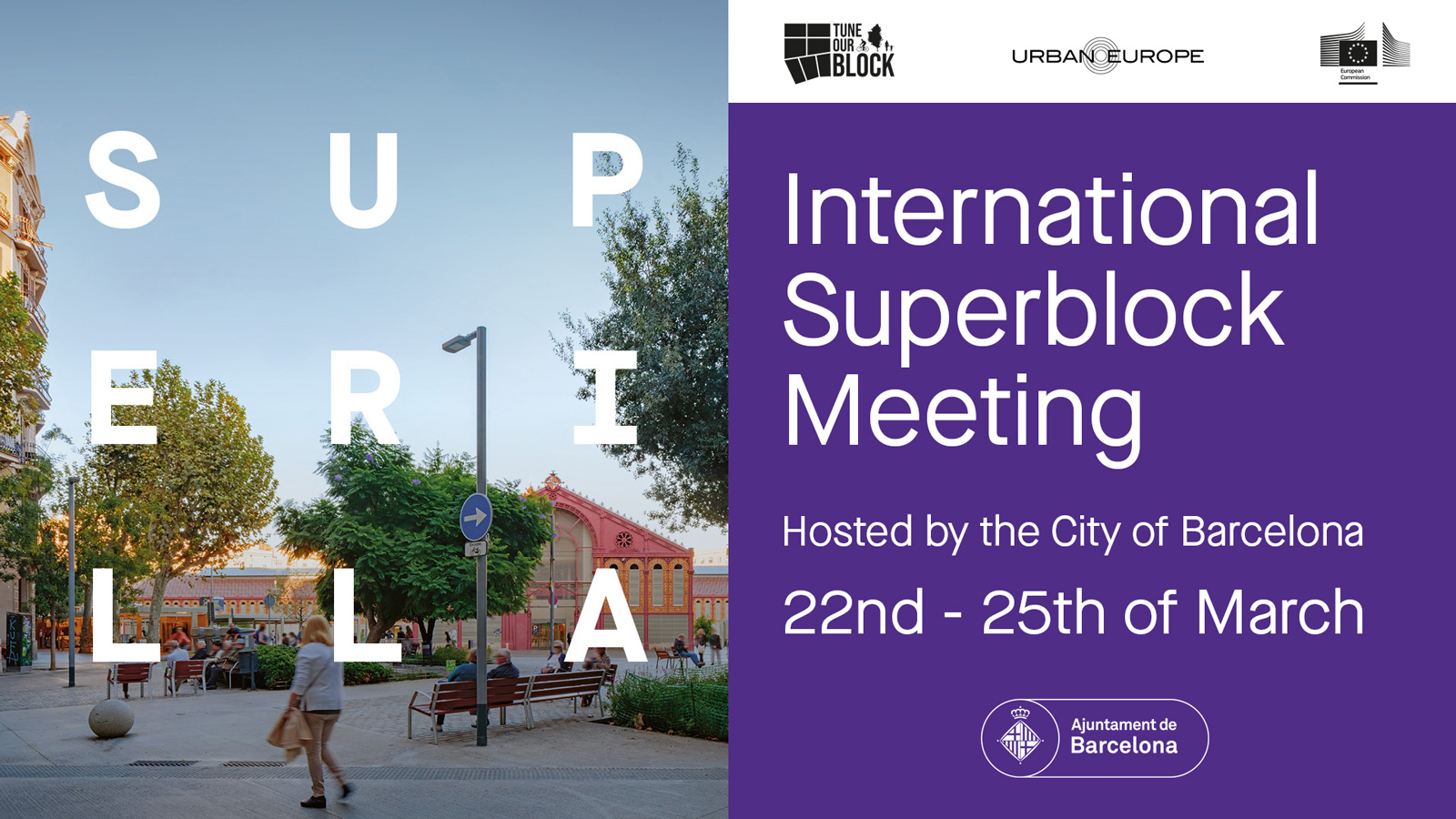
Urban Transformation lecture by Janette Sadik-Khan
Wednesday 22. March 18:00-19:00
Moderated by Oriol Nel·lo
High level plenary: Round table with Brussels, Copenhagen, Ljubljana, Lodz, London, Ghent, Milan, Paris, Valencia and Vitoria-Gasteiz,
Thursday 23 March 12:30 – 14:00
Moderated by Núria Moliner
“Superblock Barcelona” book presentation with Janette Sadik-Khan
Thursday 23 March 18:30-19:30
Moderated by Josep Bohigas
This spring the LAUT co-founders are also sharing their latest learnings in several university courses and lectures.
At Graz University of Technology, Institute of Urbanism, Florian Lorenz is co-teaching an advanced course module ob urban research coined "Learning form... Supergrätzl Favoriten". Have a look at the nicely prepared synopsis for the course.
Georg Wieser is sharing LAUT's insights at FH Salburg's curriculum for Smart Cities in Smart Buildings.
At the TU Vienna, Institute of Spatial Planning, Georg Wieser and Florian Lorenz share their insights on Tactical Urbanism as a Strategy for urban transformation projects.
The importance of fresh and inspiring discourse cannot be overstated. In Vienna the urbanize festival brings critical and fresh urban discourse to the city each year.
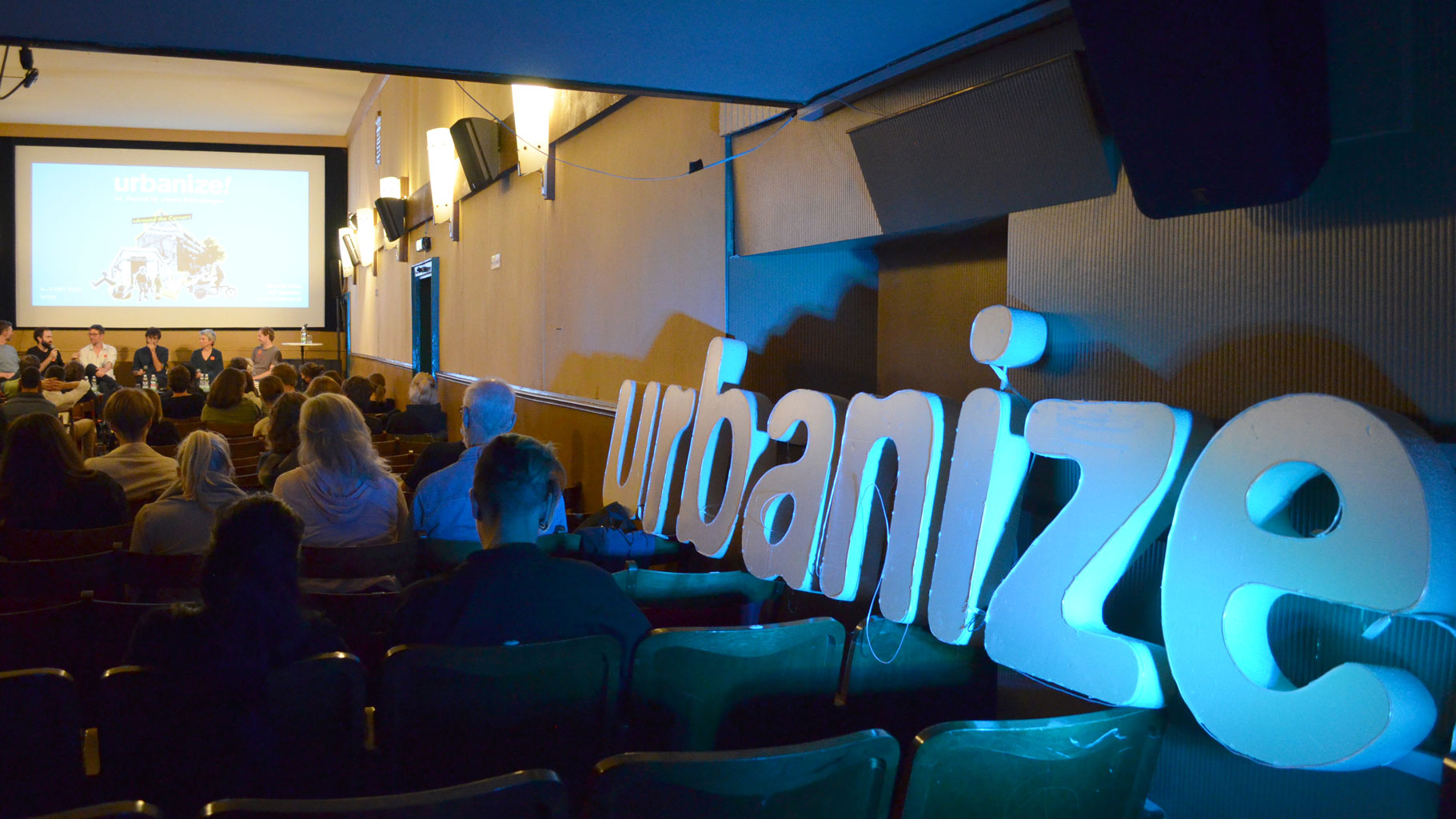
In 2022 LAUT contributed to the program by leading a guided tour through the Supergrätzl Favoriten and by participating in the discussion “Reclaim the Streets!” together with colleagues from Barcelona, Berlin, Milan and Paris. Many thanks to the team at derive for bringing about the urbanize festival as well as inviting us to share our insights with colleagues and an interested audience!
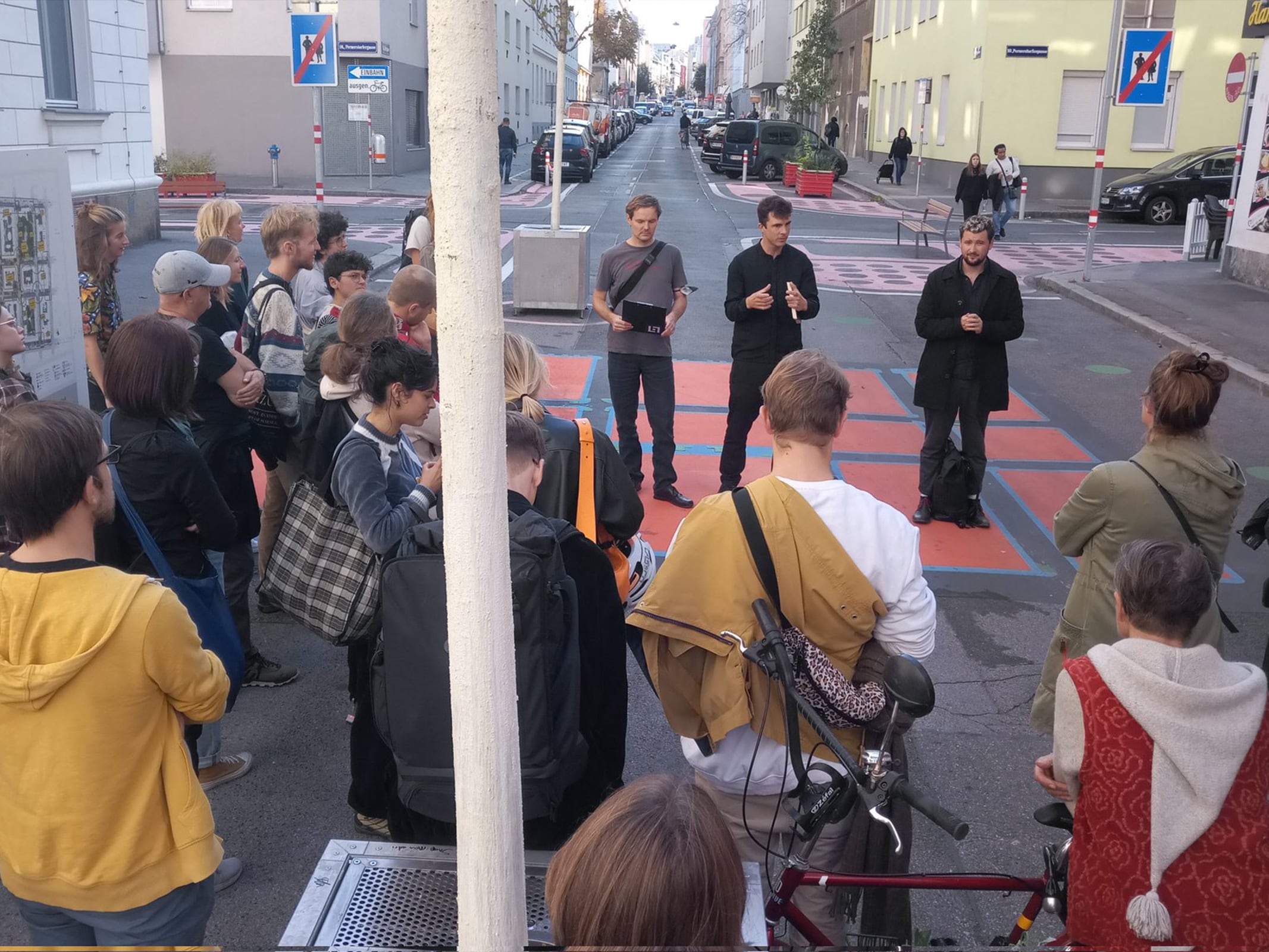
The climate-friendly »15 minute city« modell is starting to reclaim public space in cities worldwide: Streets and squares are becoming green recreation zones for the neighbourhood; public transport, walking and cycling are given priority. But the farewell to the car-oriented city creates conflicts and requires strategy as well as political courage.
In Paris, the socialist mayor Anne Hidalgo wins elections with the promise to cut 60,000 parking spaces and to make France's capital a climate oasis. In Berlin and many other German cities, the civil society network »Changing Cities« is pushing for a climate- and bike-friendly urban transformation; Milan's »Piazze Aperte« programme has been transforming 38 streets and intersections into recreational zones for the neighbourhood in only three years time and, like Valencia and it's »ciudad the plazas«, is using tactical urbanism for rapid change; in Vienna the »Supergrätzl Favoriten« resembles the first test site for the implementation of the superblock concept.
What do strategies for a successfull climate-friendly urban transformation look like? How important is the role of participation? What experiences and learnings do already exist internationally?
An evening full of good practice with:
15 min City, Paris: Mobility and public space
Yann-Fanch Vauléon, APUR, Paris
Superblock: Creating new public space in Barcelona and Valencia
Jokin Santiago Elorriaga and Marta Sola Páramo, Leku Studio, Barcelona
The Piazze Aperte Programme, Milan
Demetrio Scopelliti, AMAT Milan
Developing streets as a community asset
Florian Lorenz, studio LAUT, Vienna
Changing Berlin, Changing Cities
Ragnhild Sørensen, Changing Cities e.V., Berlin
Moderation: Joshua Grigsby
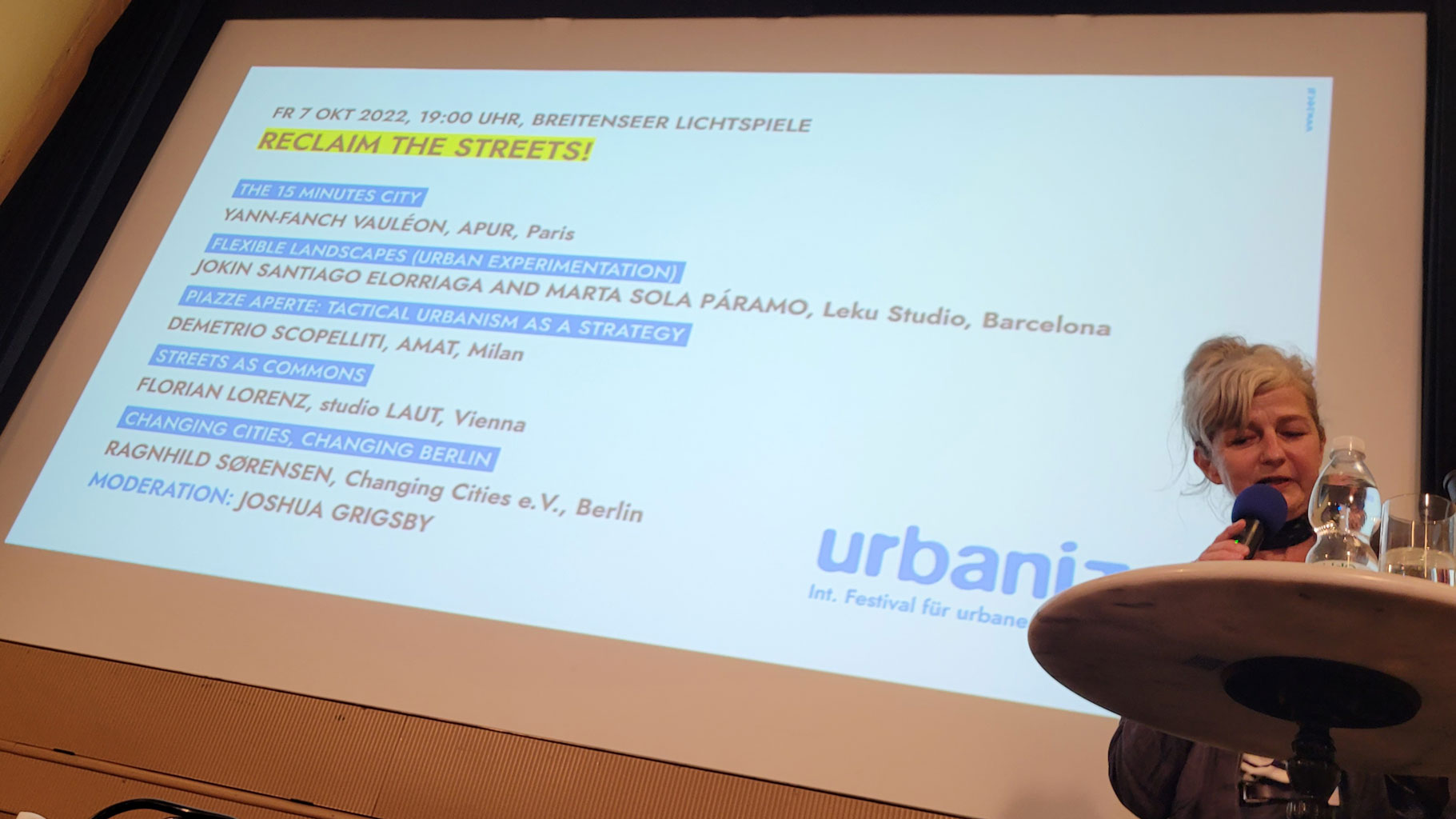
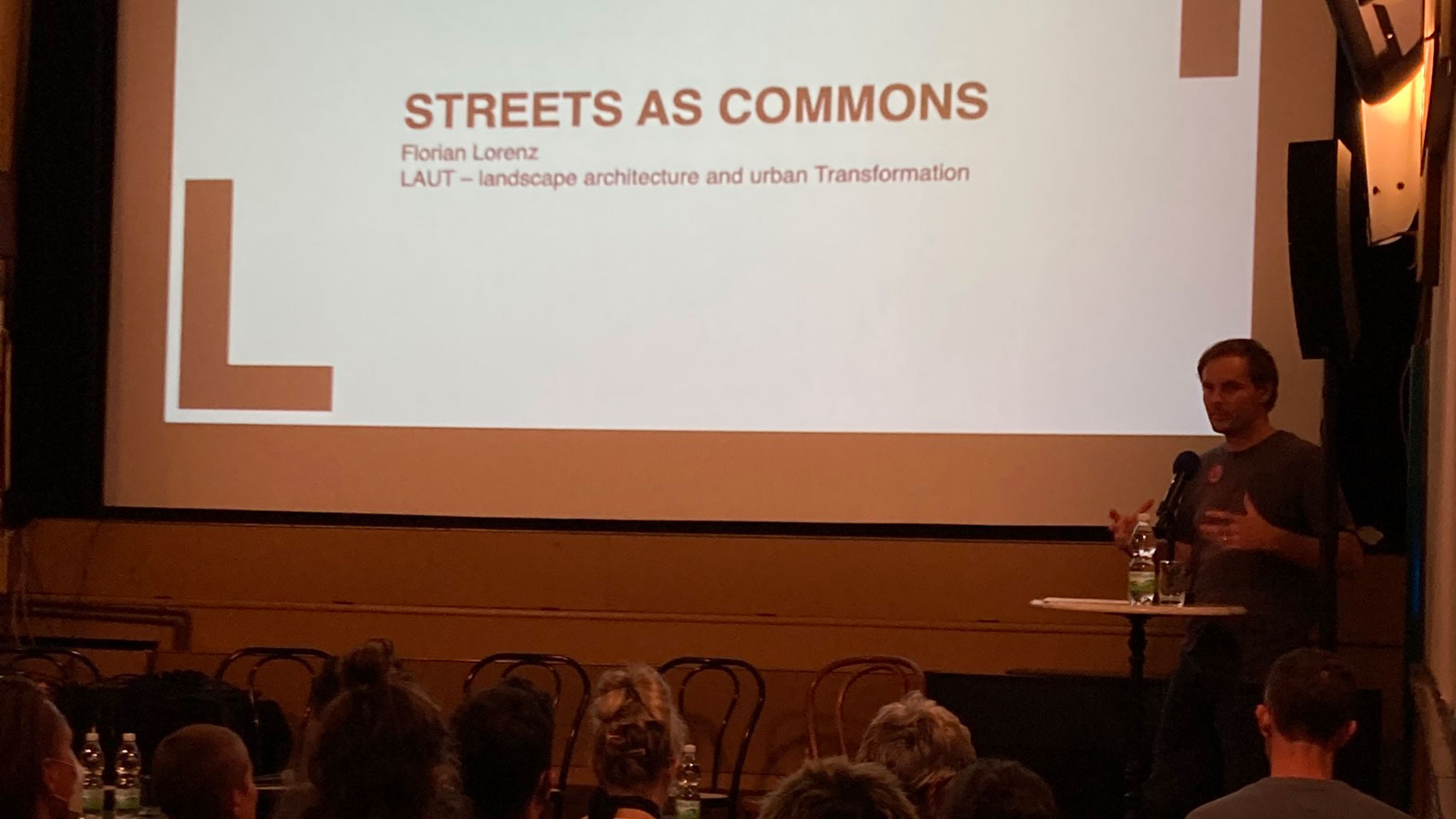
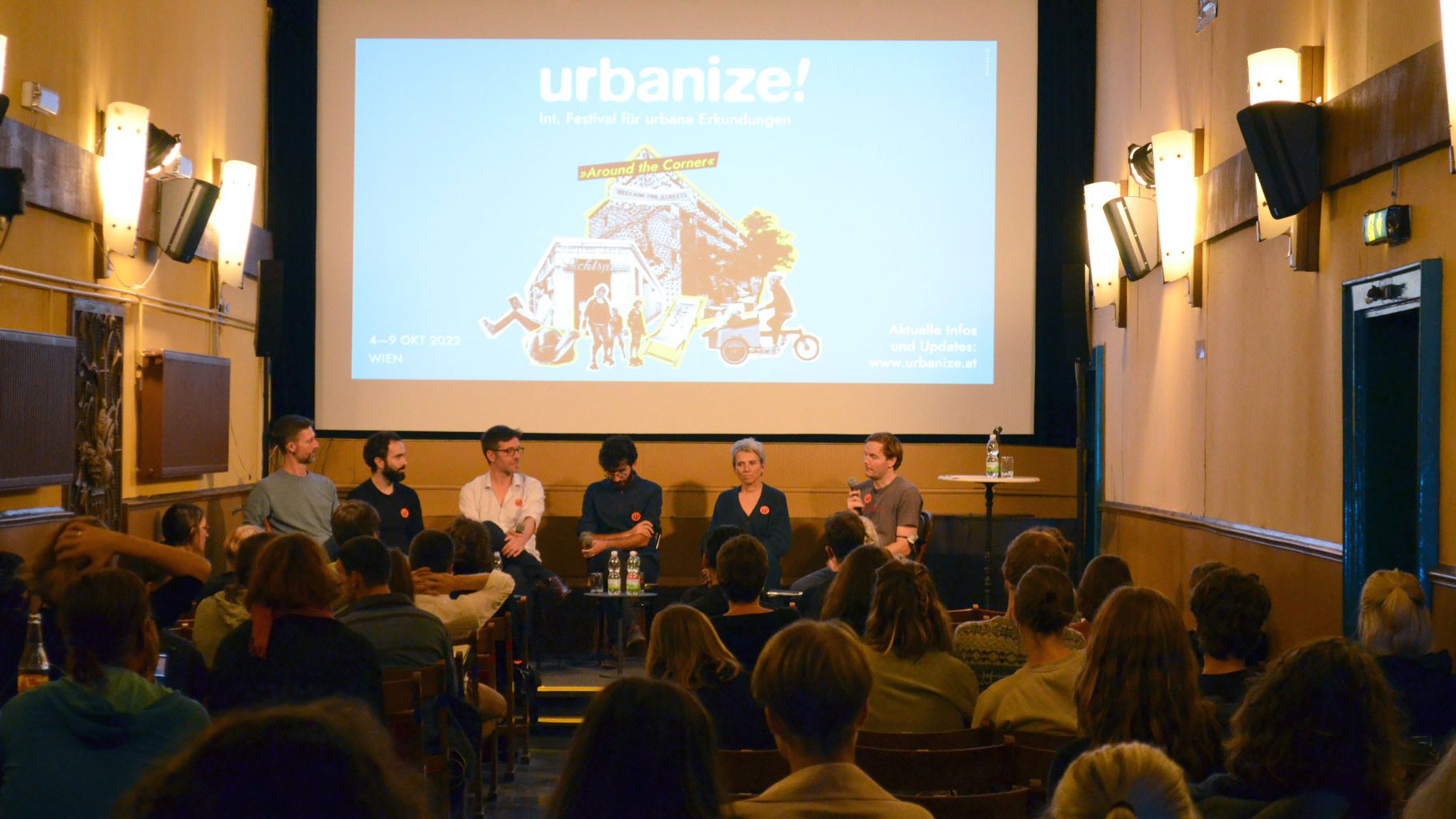
To safeguard the qualitative execution of our mobility designs LAUT also oversees the execution of our design work.
For the Supergrätzl Favoriten the client tasked us with creating a colorful application for redefining the spaces in the tactical urbanism phase. LAUT’s design aims to be legible, comply with Austrian traffic code, street space norms and be applicable in a cost effective way.
In May 2022 we were supporting and guiding the application of the mobility design for the preliminary traffic guidance measure by the team of pulmetall who did an amazing job to bring the design to life. Many thanks to the team of pulmetall for their work and the images shown here!
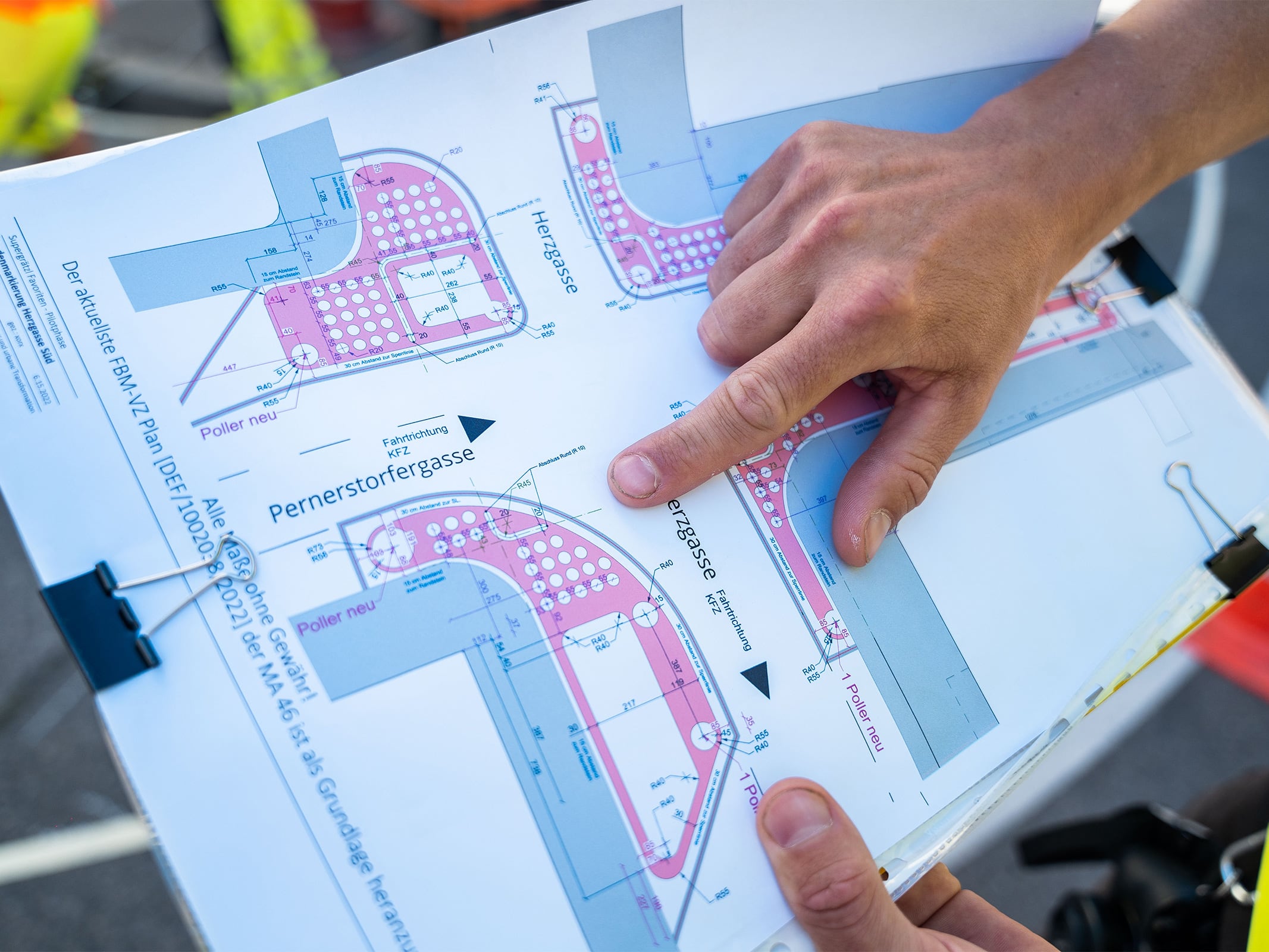
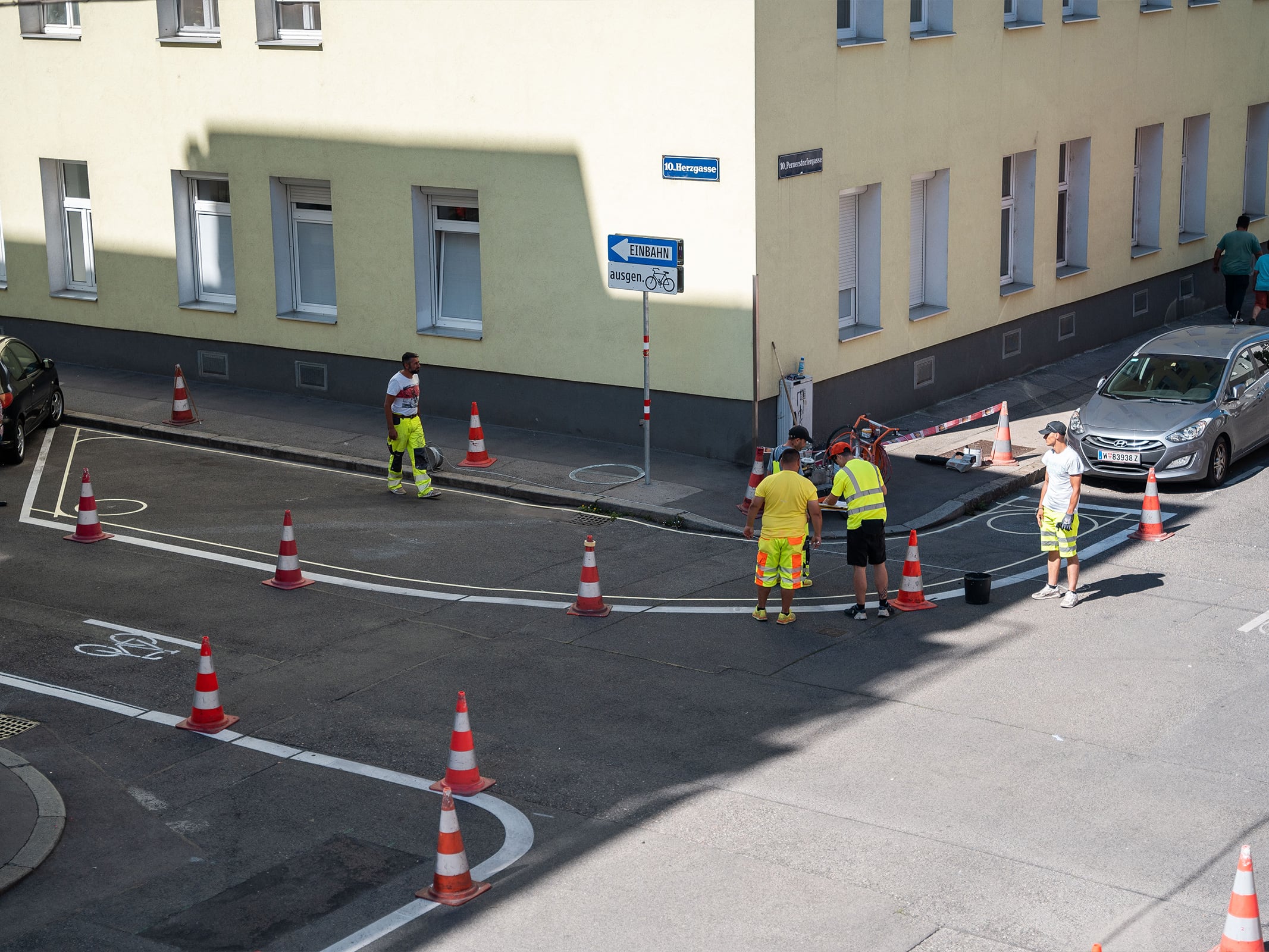
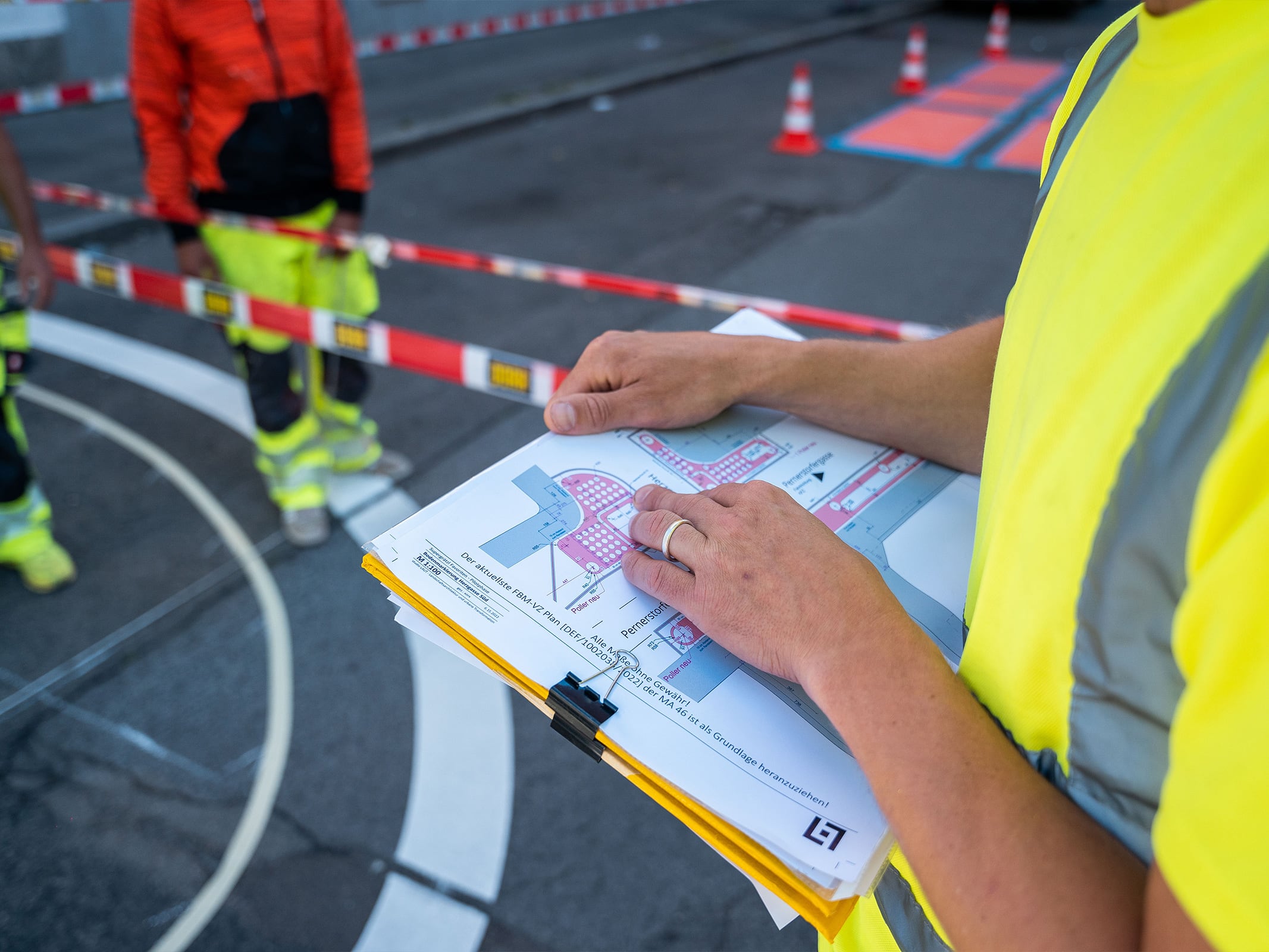
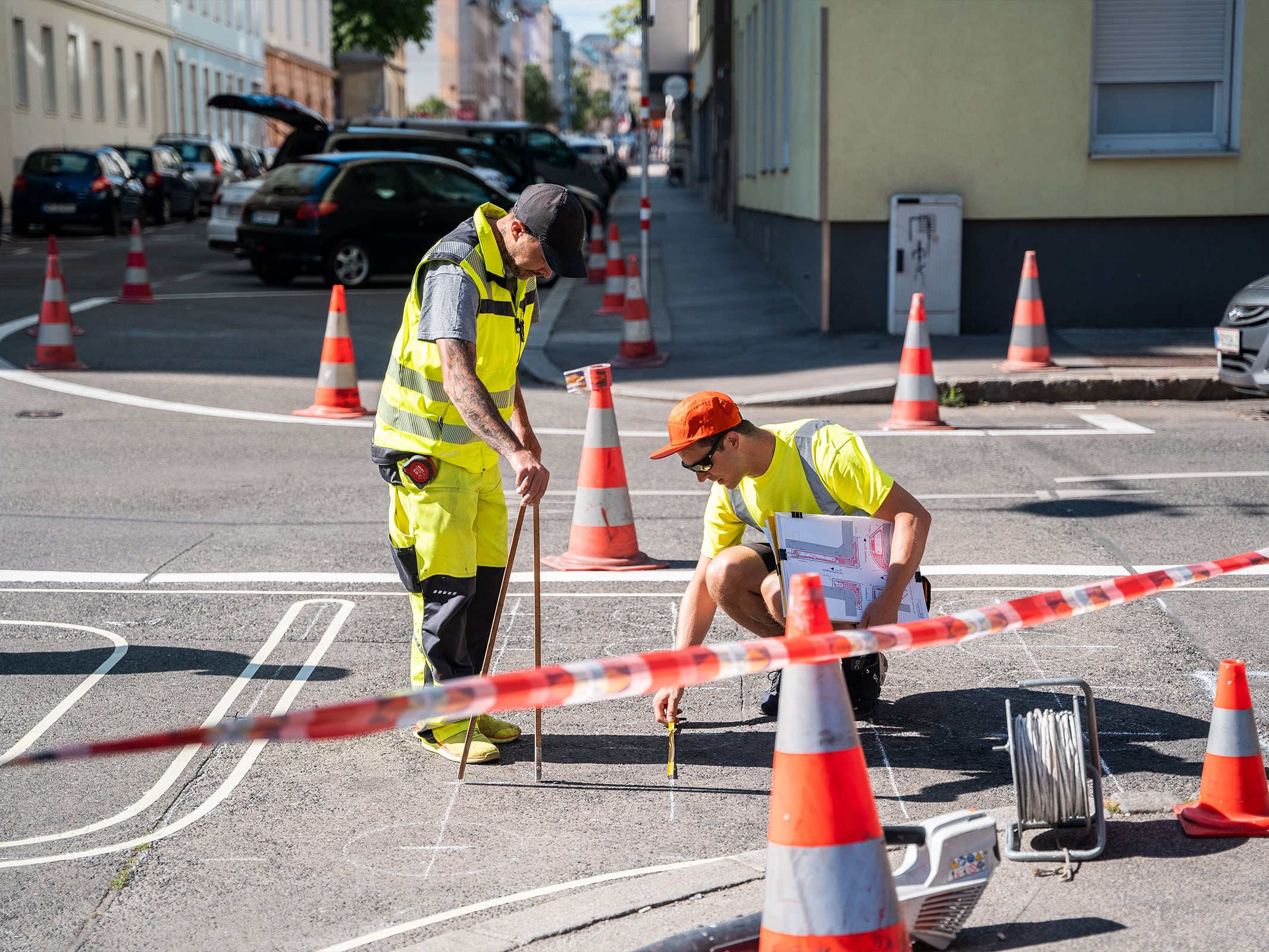
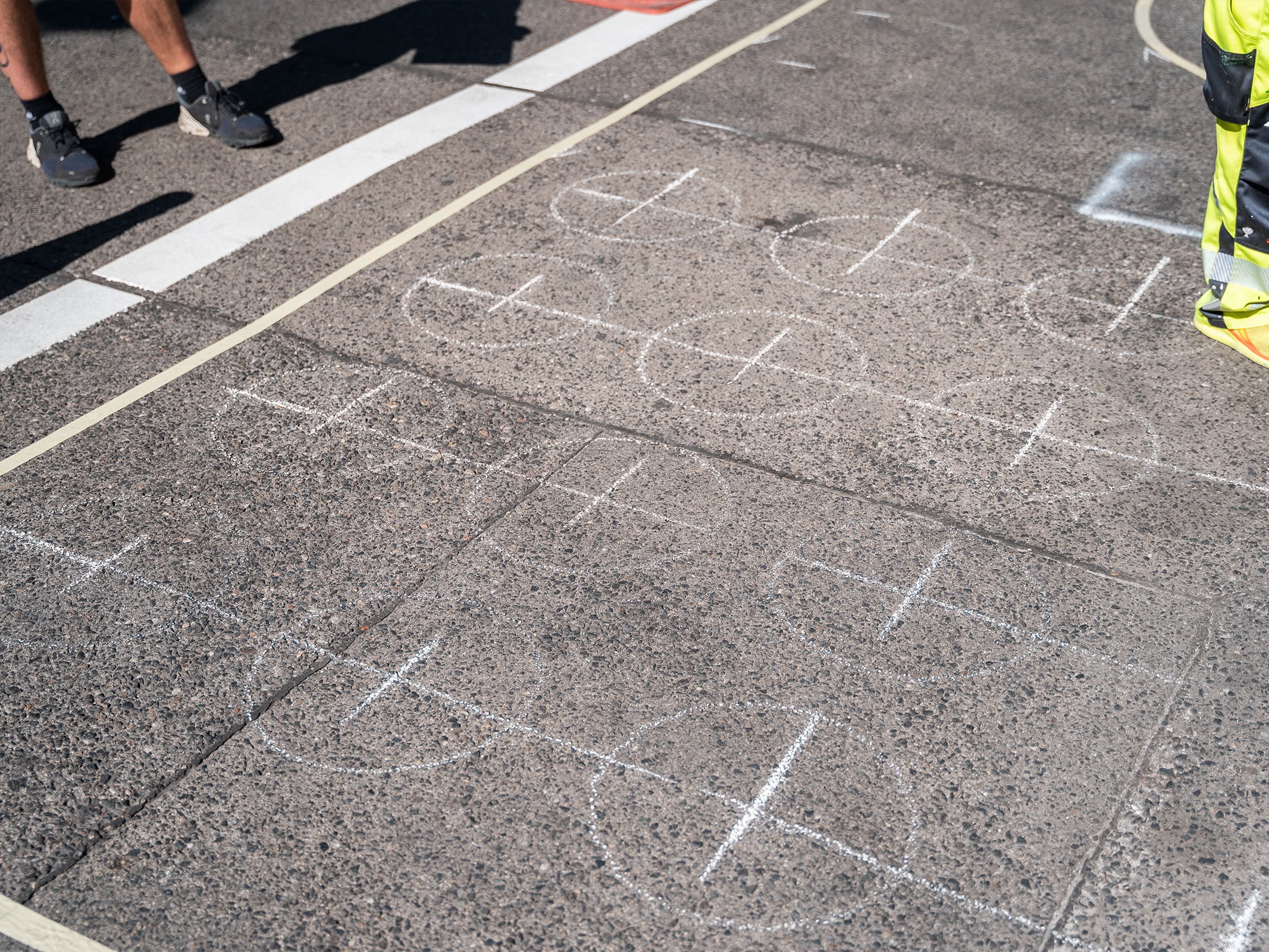
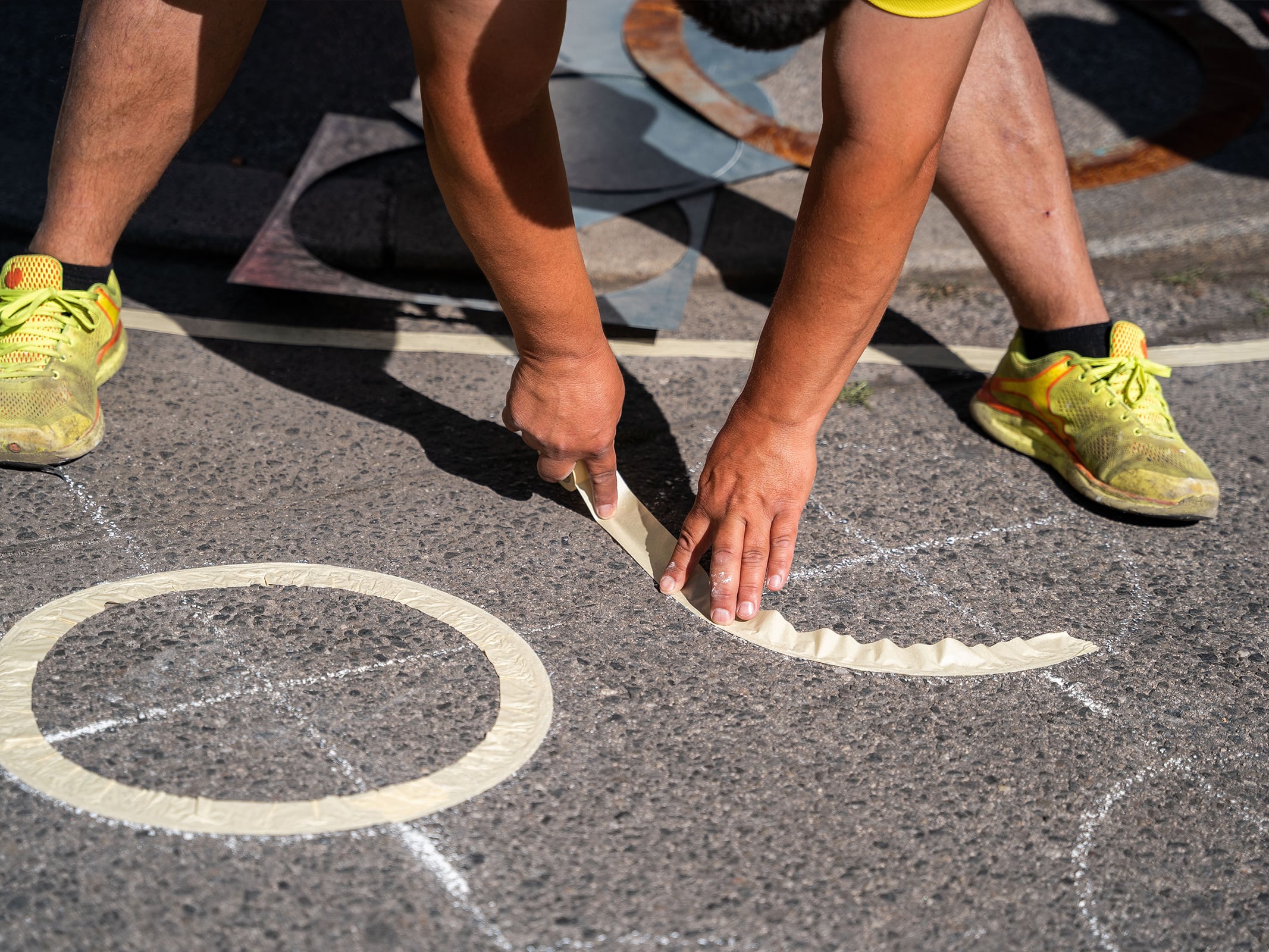
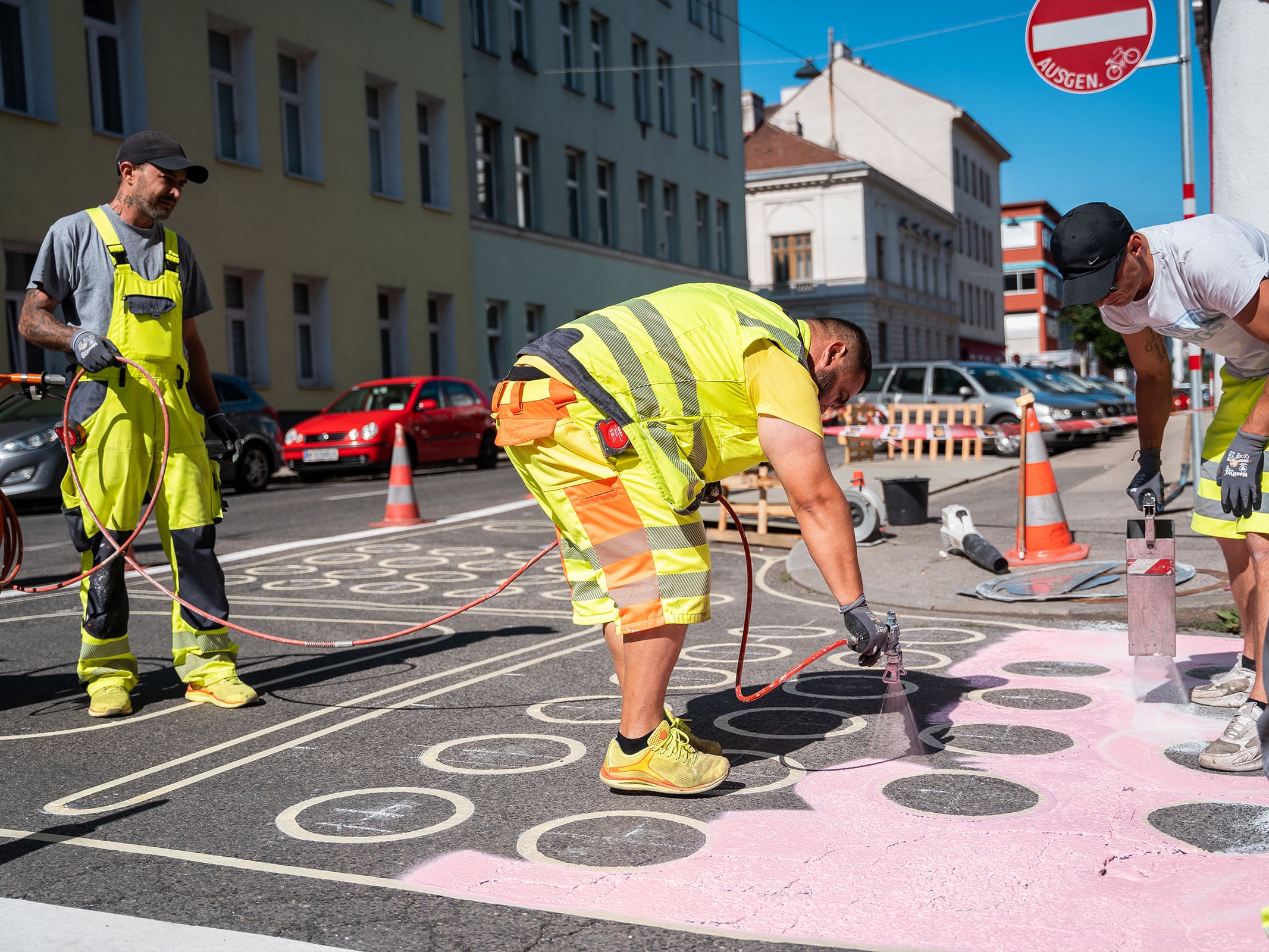
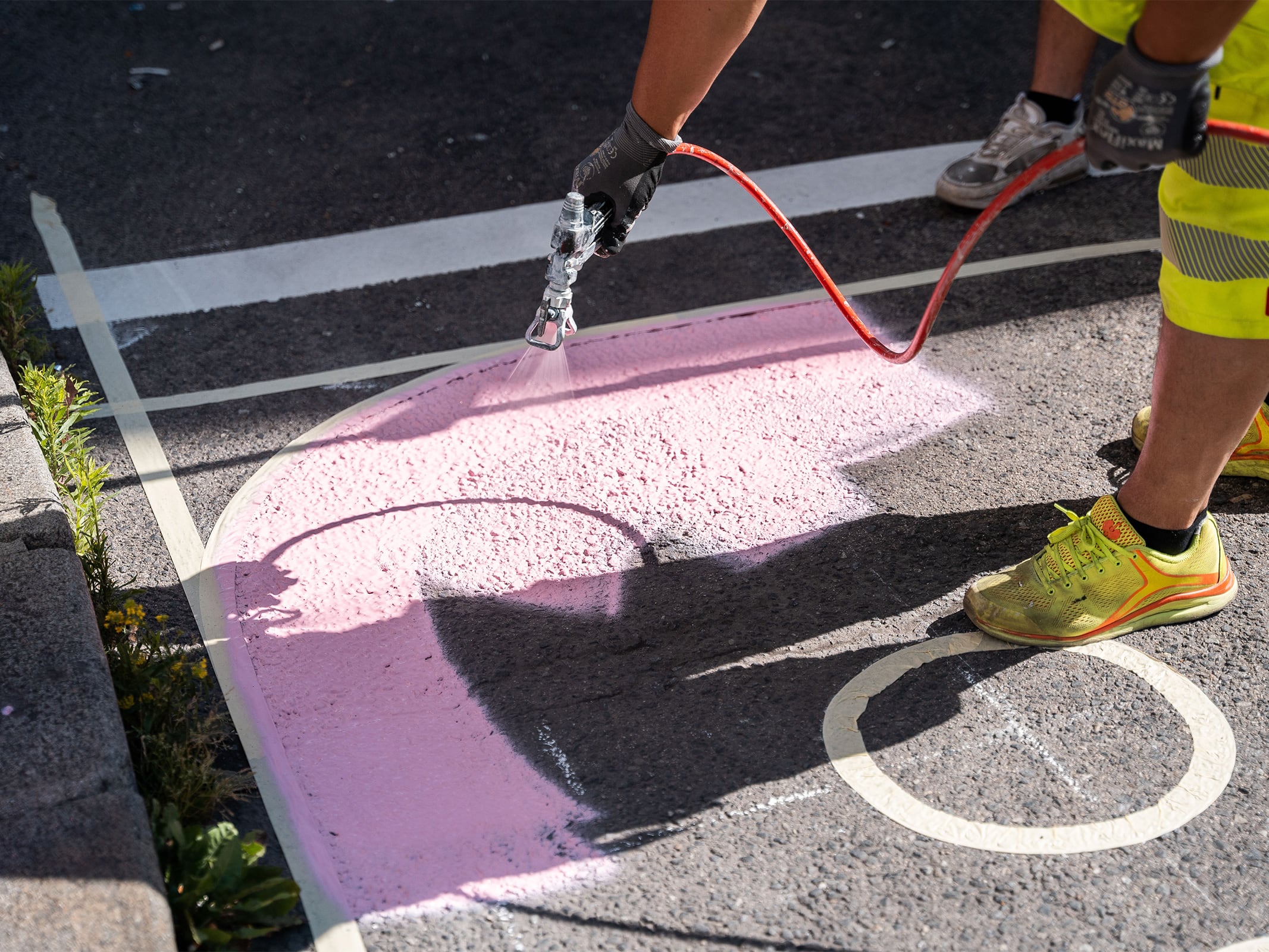
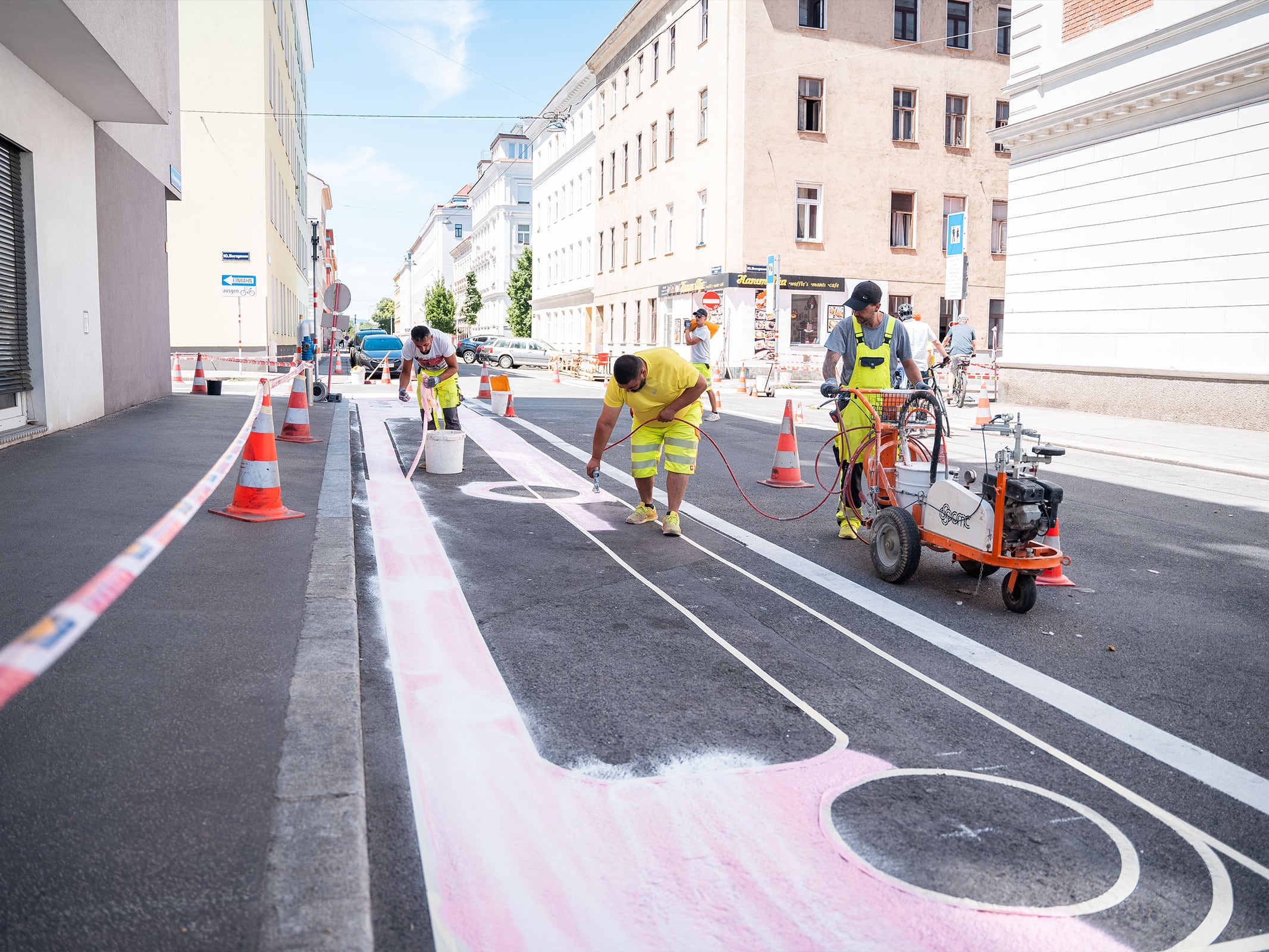
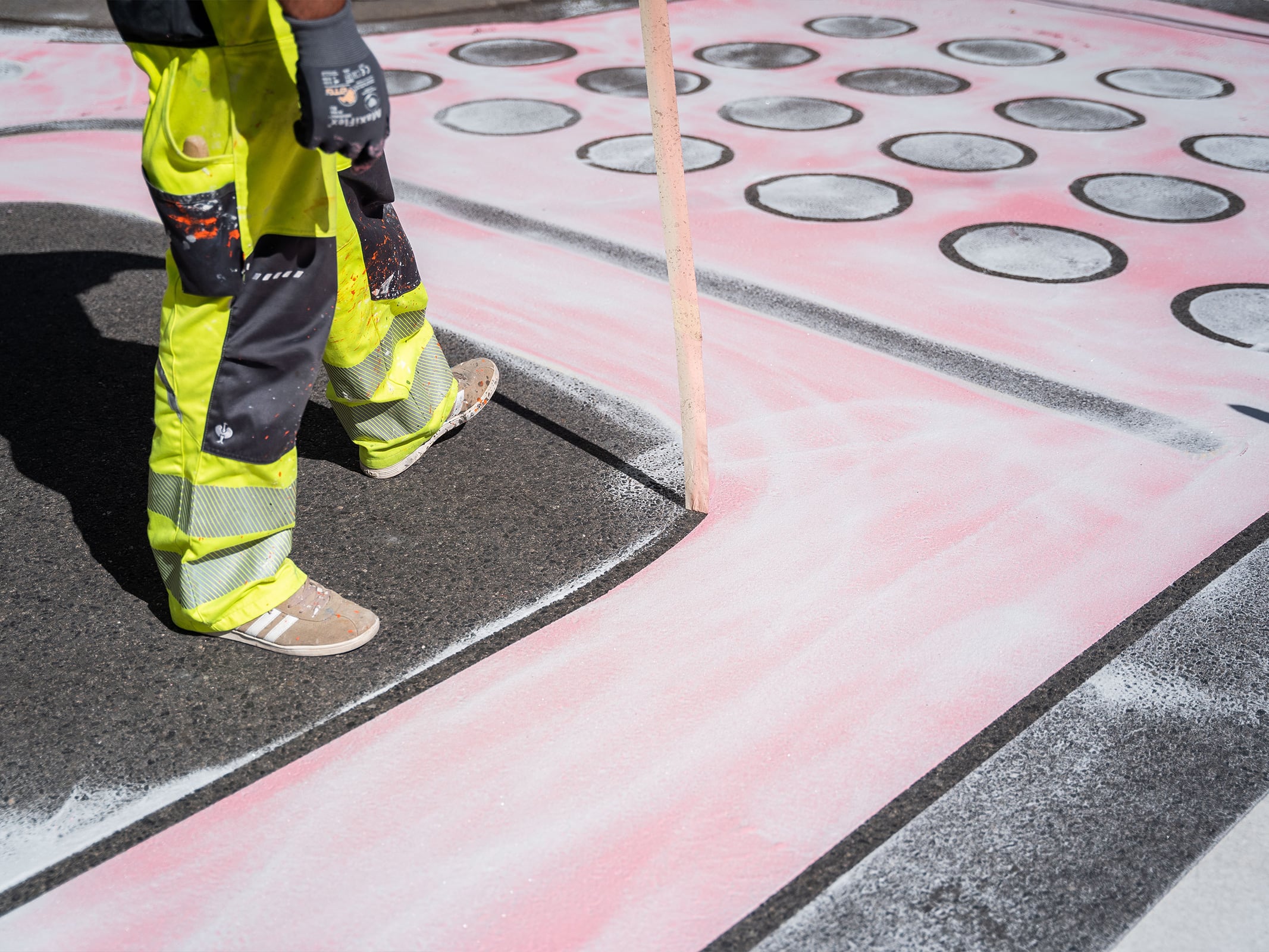
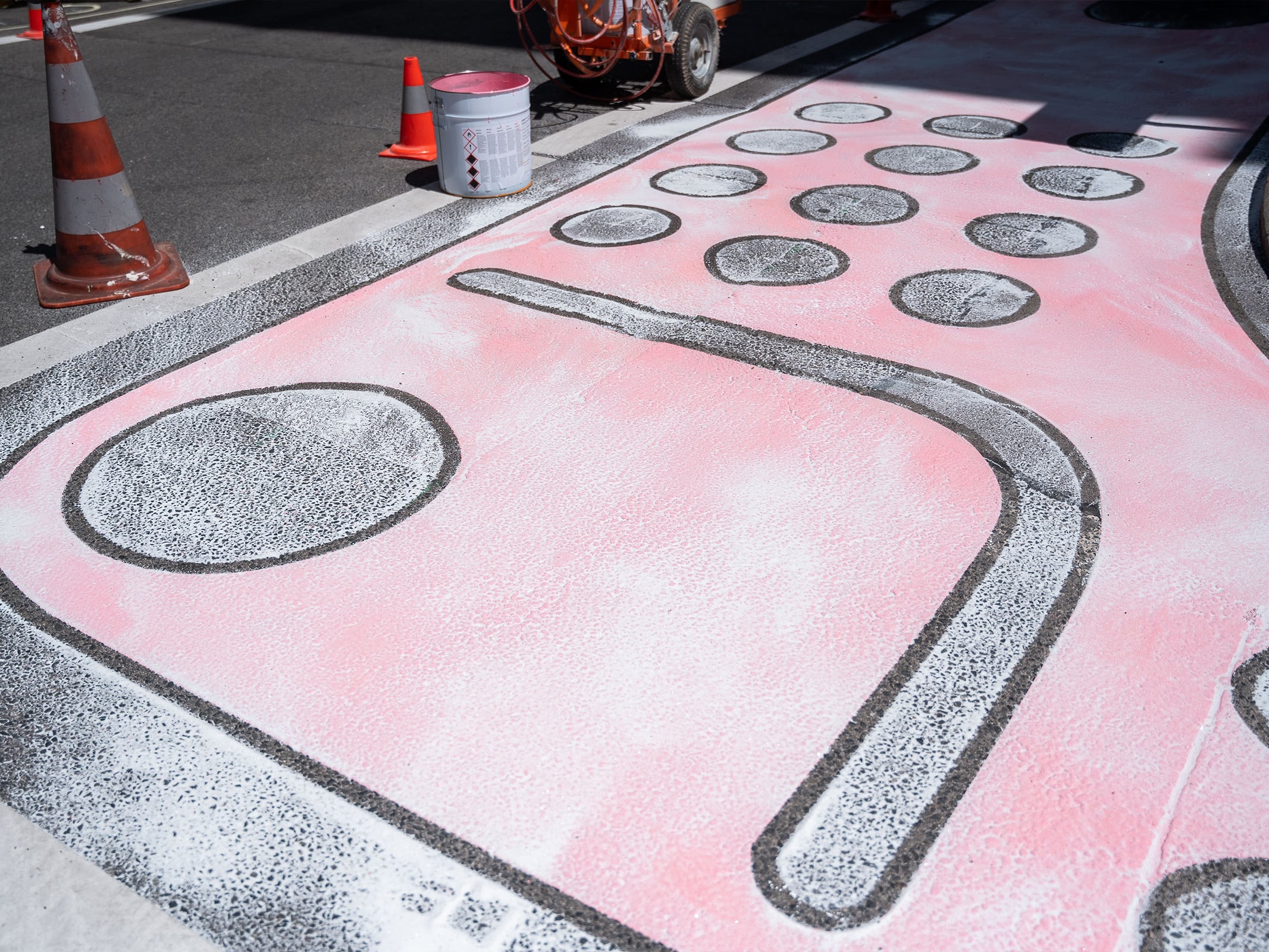
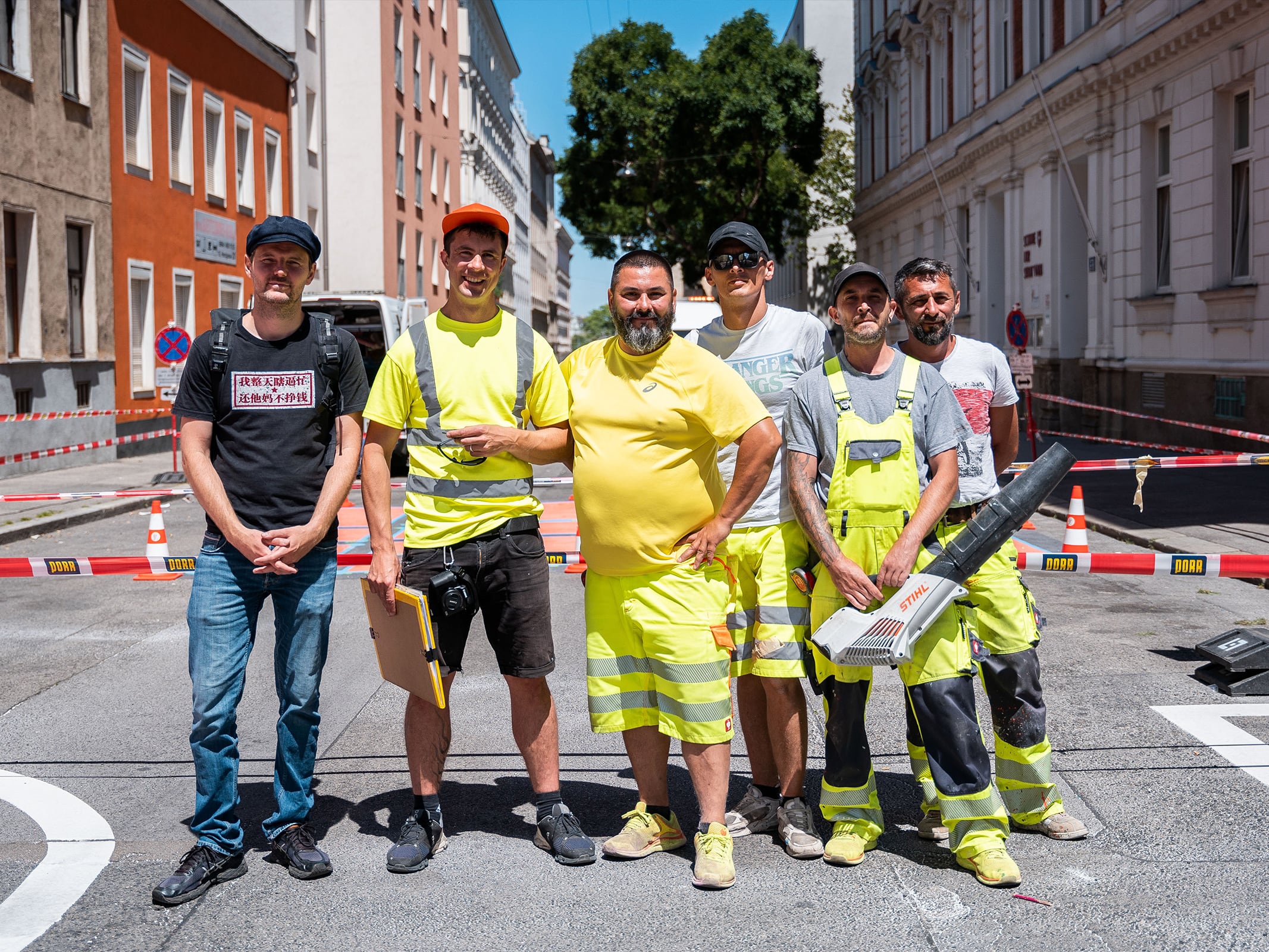
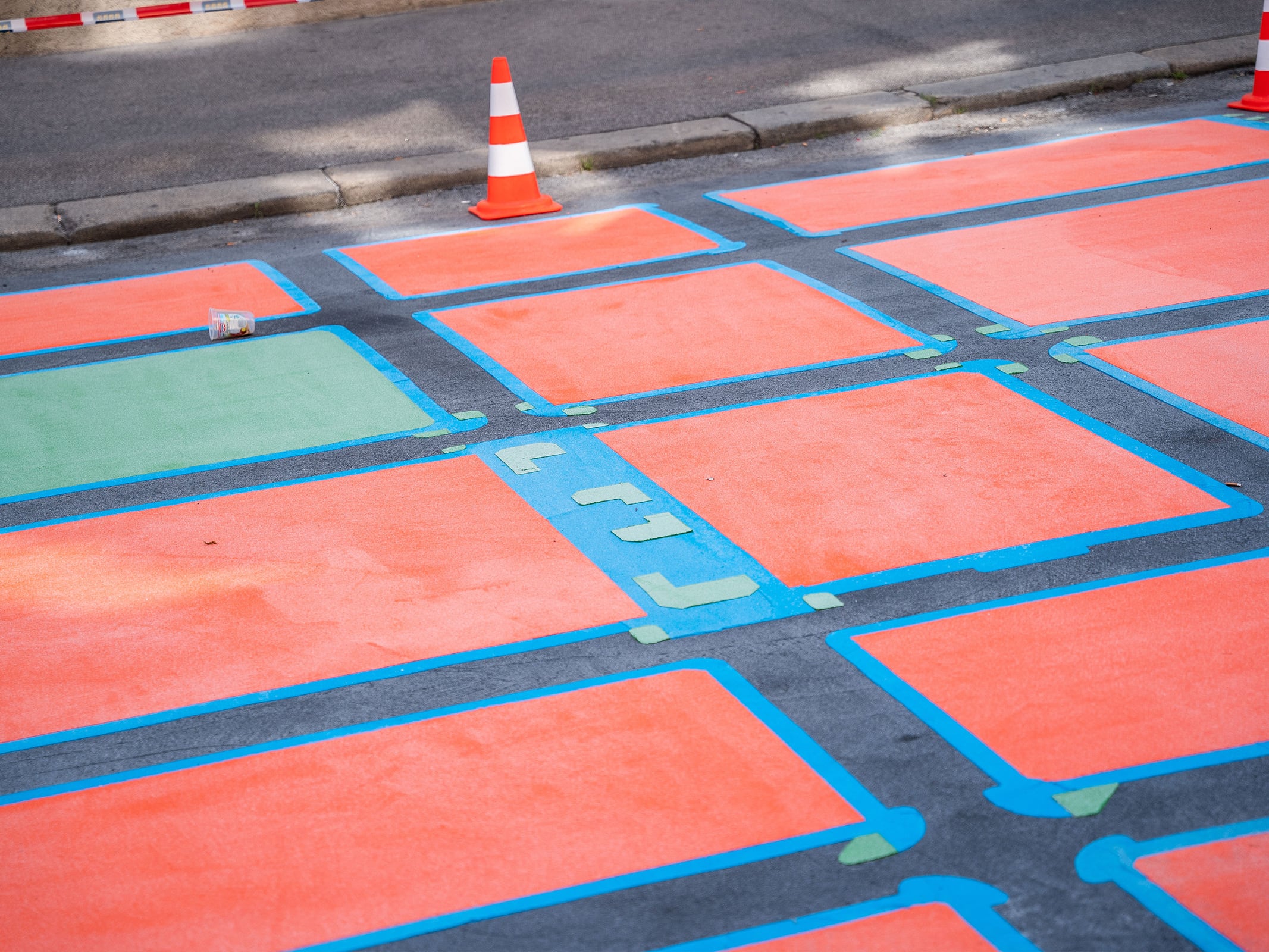
Within Viena's Superblock pilot project Supergrätzl Favoriten LAUT developed adaptive planter elements. Staring from the second half of 2024 the preliminary tactical/adaptive measures will give way to permanent construction measures of the implementation project. As their task of opening the streetspace for new uses has been completed the urban greening elements now found a new home at Vienna's "Schwendermarkt".





We are thrilled to have co-authored a peer-reviewed paper on the application of the superblock concept in Vienna. Leading author Anna-Katharina Brenner assembled a team of co-authors from BOKU-SEC, AIT – Austrian Institute of Technology and studio LAUT to investigate “How experiments with superblocks in Vienna shape climate and health outcomes and interact with the urban planning regime”.
The paper builds on the modelling results developed in the SUPERBE project as well as Anna’s investigation of the current application of Superblocks in Vienna. The highlights and main findings in the paper are:
Read the full paper to gain more knowledge on the history and future pathways of the Superblock project in Vienna.
→ Direct download
→ Online article on publisher’s website
One really interesting approach brought forward in the paper is the different “dimensions” of an urban planning regime that do interact with a project (experiment) to innovate or transform urban space. See the table below: We can tell from experience that each and every dimension can be a real ally or challenge!


Enjoy the read!
How can citizens initiate and steer effective urban transformation processes? What are the conditions that enable civic stakeholders to involve themselves actively in urban transformation projects, or, eventually also kick them off?
In the TuneOurBlock project we investigate such questions, amongst others, with our consortial collaborators in two Living Labs in Vienna and Berlin.
Recently the first workshop in Vienna’s Living Lab – the superblock initiative in Lichtental, 1090 Wien – has been held. LAUT analysed the project area and led the process to develop scenarios for traffic organisation schemes to significantly reduce on street parking and inhibit motorised traffic to drive through the project area.
Based on these studies the team of AIT was able to create an experimental interactive participation tool for stakeholder involvement. The tool allows for a playful interaction with the different options for the superblock project and gives (real time) feedback on a variety of KPIs such as tree planting density or reduction of on-street parking. With the help of the tool these versions of the superblock can be overlaid and visualised as augmented reality overlays or provide a simple first-person VR experience of the transformed streetscape.
During the workshop our local partner – the agenda group “Lebenswertes Lichtental” – also collected inputs for their own advocacy work lobbying for a local superblock project. The group involved the neighborhood by mapping out ideas for the superblock project on a planview of the superblock site.
We are looking forward to applying our involvement strategies during the course of 2023 in the TuneOurBlock Living Lab!



Within the TuneOurBlock project, LAUT helped to bring about the first International Superblock Meeting in Barcelona. From 22-25 March 2023 politicans and technical staff of 15 municipalities from all over Europe meet in Barcelona to discuss how superblocks and similar neighborhood-scale urban transformation projects can be implemented effectively.
As member of the TuneOurBlock municipal peer group, the City of Barcelona's Office of the Chief Architect initiated and brought about together with the TuneOurBlock project consortium. LAUT was helping to conceptualize, develop, prepare and facilitate the event.
Many thanks to the team at the Office of Barcelona's Chief Architect for this productive and excellent collaboration!

Urban Transformation lecture by Janette Sadik-Khan
Wednesday 22. March 18:00-19:00
Moderated by Oriol Nel·lo
High level plenary: Round table with Brussels, Copenhagen, Ljubljana, Lodz, London, Ghent, Milan, Paris, Valencia and Vitoria-Gasteiz,
Thursday 23 March 12:30 – 14:00
Moderated by Núria Moliner
“Superblock Barcelona” book presentation with Janette Sadik-Khan
Thursday 23 March 18:30-19:30
Moderated by Josep Bohigas
This spring the LAUT co-founders are also sharing their latest learnings in several university courses and lectures.
At Graz University of Technology, Institute of Urbanism, Florian Lorenz is co-teaching an advanced course module ob urban research coined "Learning form... Supergrätzl Favoriten". Have a look at the nicely prepared synopsis for the course.
Georg Wieser is sharing LAUT's insights at FH Salburg's curriculum for Smart Cities in Smart Buildings.
At the TU Vienna, Institute of Spatial Planning, Georg Wieser and Florian Lorenz share their insights on Tactical Urbanism as a Strategy for urban transformation projects.
The importance of fresh and inspiring discourse cannot be overstated. In Vienna the urbanize festival brings critical and fresh urban discourse to the city each year.

In 2022 LAUT contributed to the program by leading a guided tour through the Supergrätzl Favoriten and by participating in the discussion “Reclaim the Streets!” together with colleagues from Barcelona, Berlin, Milan and Paris. Many thanks to the team at derive for bringing about the urbanize festival as well as inviting us to share our insights with colleagues and an interested audience!

The climate-friendly »15 minute city« modell is starting to reclaim public space in cities worldwide: Streets and squares are becoming green recreation zones for the neighbourhood; public transport, walking and cycling are given priority. But the farewell to the car-oriented city creates conflicts and requires strategy as well as political courage.
In Paris, the socialist mayor Anne Hidalgo wins elections with the promise to cut 60,000 parking spaces and to make France's capital a climate oasis. In Berlin and many other German cities, the civil society network »Changing Cities« is pushing for a climate- and bike-friendly urban transformation; Milan's »Piazze Aperte« programme has been transforming 38 streets and intersections into recreational zones for the neighbourhood in only three years time and, like Valencia and it's »ciudad the plazas«, is using tactical urbanism for rapid change; in Vienna the »Supergrätzl Favoriten« resembles the first test site for the implementation of the superblock concept.
What do strategies for a successfull climate-friendly urban transformation look like? How important is the role of participation? What experiences and learnings do already exist internationally?
An evening full of good practice with:
15 min City, Paris: Mobility and public space
Yann-Fanch Vauléon, APUR, Paris
Superblock: Creating new public space in Barcelona and Valencia
Jokin Santiago Elorriaga and Marta Sola Páramo, Leku Studio, Barcelona
The Piazze Aperte Programme, Milan
Demetrio Scopelliti, AMAT Milan
Developing streets as a community asset
Florian Lorenz, studio LAUT, Vienna
Changing Berlin, Changing Cities
Ragnhild Sørensen, Changing Cities e.V., Berlin
Moderation: Joshua Grigsby



To safeguard the qualitative execution of our mobility designs LAUT also oversees the execution of our design work.
For the Supergrätzl Favoriten the client tasked us with creating a colorful application for redefining the spaces in the tactical urbanism phase. LAUT’s design aims to be legible, comply with Austrian traffic code, street space norms and be applicable in a cost effective way.
In May 2022 we were supporting and guiding the application of the mobility design for the preliminary traffic guidance measure by the team of pulmetall who did an amazing job to bring the design to life. Many thanks to the team of pulmetall for their work and the images shown here!












